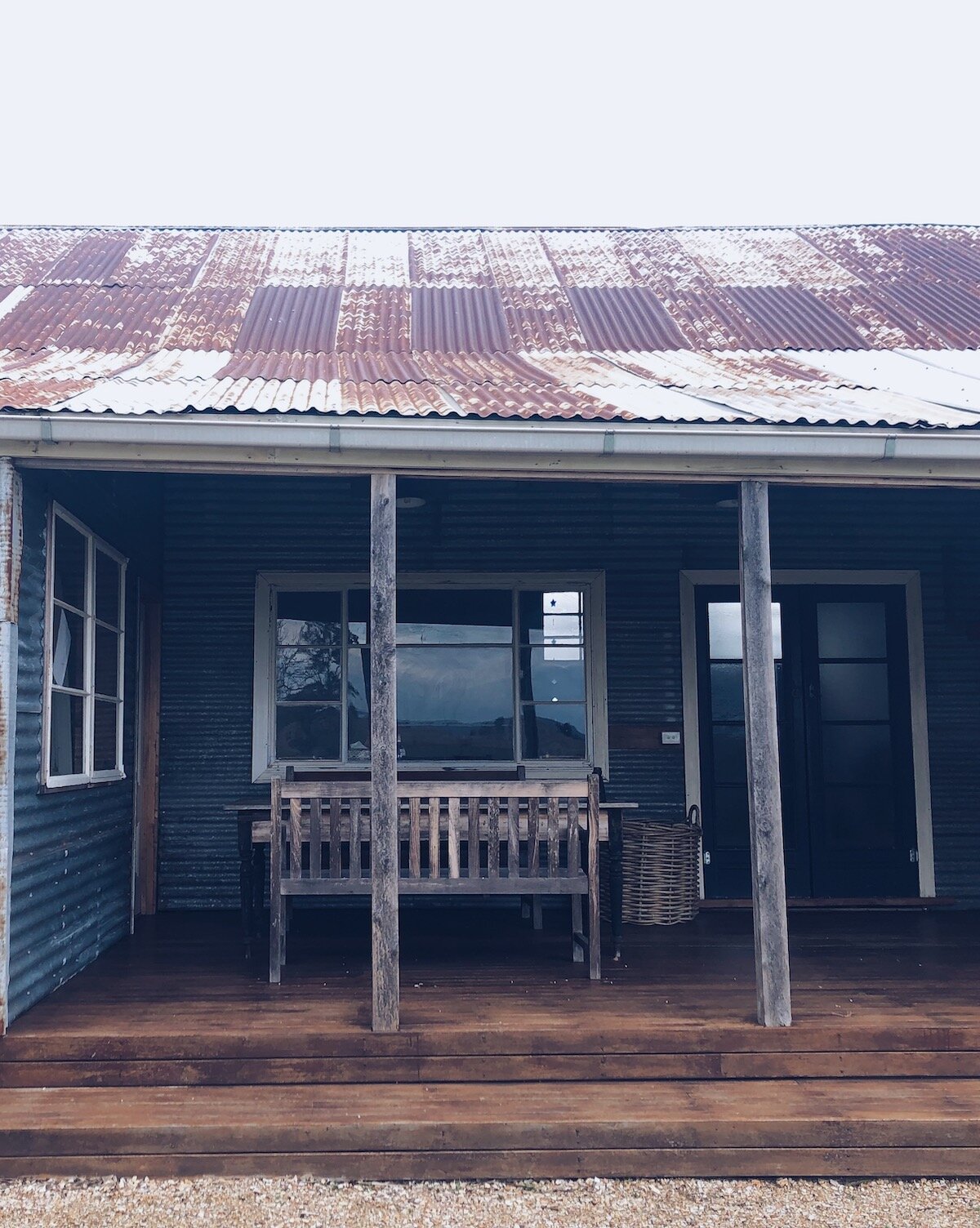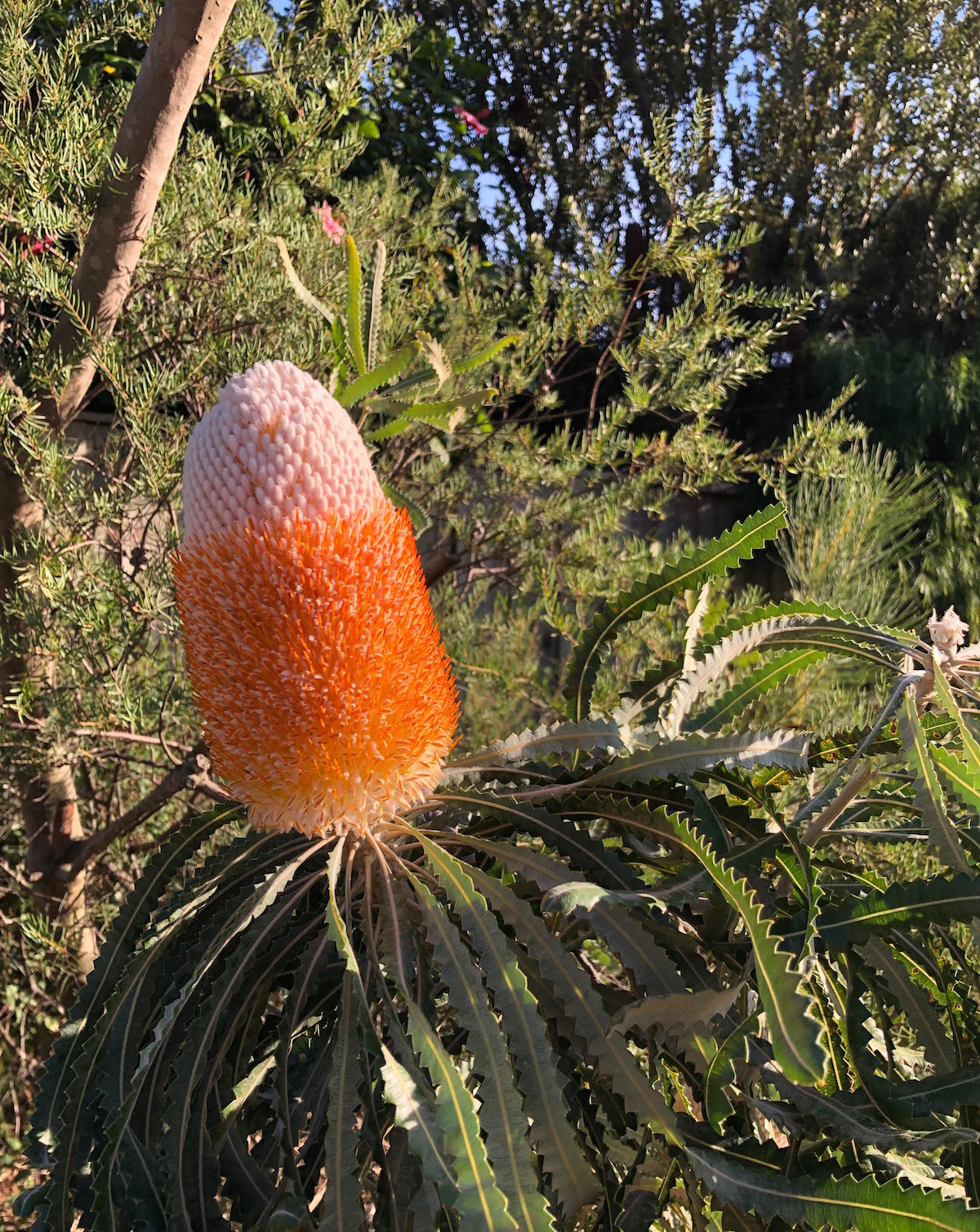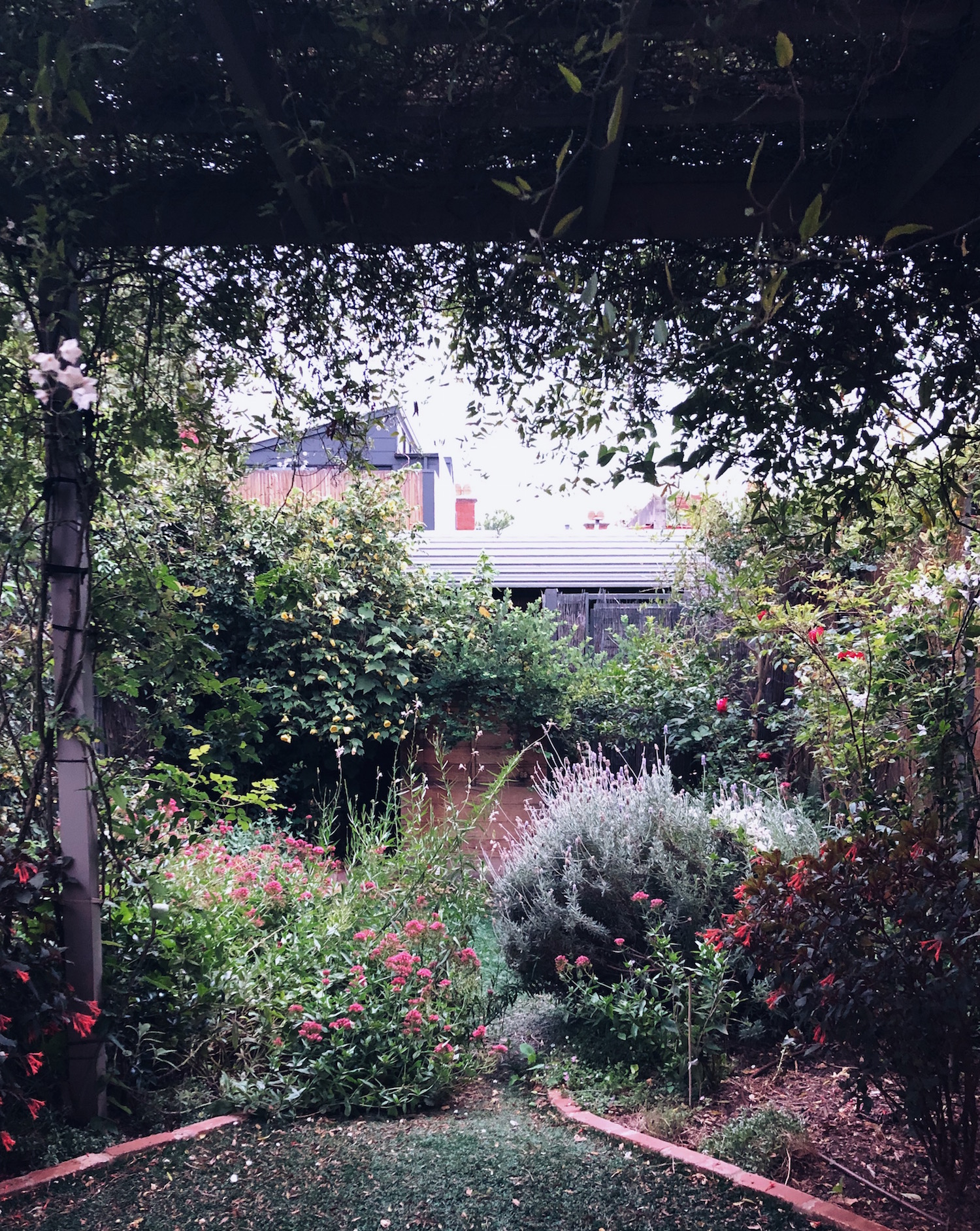
JOURNAL
documenting
&
discovering joyful things
The blackbird in the rose bush
This morning I got up early to water the garden ahead of a forecast 44C degree (111F) day. A blackbird flew down right in front of me, within arm’s reach, and settled deep inside one of my standard roses. The bush is so covered with red blooms right now, like the Queen of Hearts’ roses in Alice in Wonderland, that the bird completely disappeared. I had to stand on my tip-toes and peer over the top leaves to discover she had made a nest in the middle of the rose bush.
I know blackbirds are supposed to be pests but I live in the city, and just about any bird in the garden feels like a gift, an endorsement from nature. I’ve been waking up to the blackbird’s song every morning of late, a sweet, melodic ode to the dawn.
Fires are raging out of control here in Australia, and my parents are facing their second night of evacuation with even worse conditions anticipated for the weekend. This is not new for them: all my life we lived in bushfire prone areas and a ‘bushfire bag’ packed beside the front door was a daily sight during summer. My mother wrote about her childhood experience of bushfires in the mountains on my blog a few years ago.
But by now we all know these fires - and severe weather events everywhere - are not part of the ordinary cycle of nature. Australia is a vast land famous for extreme weather but scientists say our current drought is the worst in 800 years. The suffering that is causing in the affected areas (most of eastern Australia) is compounded by record high temperatures, creating dust storms in crop and grazing areas, and bushfires in forested areas.
The fire brigade came to visit my parents at their house two days ago, and told them the fire closest to them was simply too big and too ferocious to control. Nothing but a heavy downpour would stop it, but a heavy downpour was not on the forecast: the weather there was hot and windy, reaching 47 (116F) in a neighbouring town.
Today when I picked up the children from school, the sky was brown instead of blue. Waiting in the shade of a tree while I tried to cool the car enough for them to sit inside it without burning their bare legs on the seats, they asked me, “Is this what global warming will feel like?” I said, “This is what global warming does feel like.”
I have been remembering a little TV show the kids used to watch, called “Ben and Holly’s Little Kingdom.” In a double episode, visiting aliens asked the elves and fairies to come and save their planet. It used to be paradise, the aliens told them, but now it was all sand. The whole planet was desert when the elves and fairies arrived, but they used magic to bring the rain and soon, it transformed back into a beautiful Garden of Eden. Just as everyone was rejoicing, the head alien said, “Fire ‘em up boys!” (or something to that effect) and factories rose from under the ground and began belching smoke into the air. All the new plants began to wilt.
I don’t know. I mean, the kids get it.
I filled some bowls with water and the children helped me place them in strategic places around the garden so the little blackbird could cool off during the hot day to come.
Scout said, “You really love nature don’t you Mum. Like me.”
Our different dreams
A week or two ago we briefly indulged the dream of buying this old house and moving to the country. It was nestled amid an ancient orchard, the ground covered in daffodils, snowflakes, jonquils and anemones that had been allowed to grow and spread for more than a hundred years.
Also on the property was a 160-year-old cottage with a thatched roof where I imagined my parents living, and an old farm shed that had been converted into a yoga studio, that was just begging to be turned into a place to host creative workshops and classes for likeminded souls.
There were 150 acres to play with, as well as a bore with water that was so fresh it was sweet to drink, and in my dream I was already sowing seeds and planting trees to bring back diversity to the soil and draw down carbon. I was purchasing truffle-inoculated oak trees; and Cream Legbar hens for blue eggs and Plymouth Rock hens for brown eggs; and a little herd of Anglo Nubian goats for making chèvre.
My imagined life on the land was magical.
It’s funny how the same dream can look so completely different, depending on who is doing the dreaming.
As I wandered through this old house, I could feel it calling out for someone to love it. For a gentle hand that would remove the birds’ nests from the ceiling and restore the rusted old Aga stove to working order in time for cold wintery days, and tend to the fruit trees and roses and orchard like Mary and Dickon in the Secret Garden.
“Me!” I all-but shouted, waving my hand in the air. “I’ll do it!”
I pictured dances in the old shearing shed, and long lunches under the grape vines outside. A gigantic kitchen garden and a medicinal herb garden next door. The children racing over to Nanna’s and Pa’s house after school every afternoon. Horses. A puppy.
But where I saw potential, my husband saw a money pit. Endless weeks and months, probably years, of spending our every spare minute and every spare cent on bringing this old farmhouse back to life.
Our weekends would be tied to this land; we could probably never afford to go on a holiday again; our choices of schools for the children would be curtailed; and he’d have to drive more than an hour each way to get to work.
My dream was cosy, botanical and gentle; Mr B’s was exhausting, expensive and stressful. I suspect the reality would have been somewhere in the middle.
Would the dream have been worth the sacrifice?
We see the world very differently, he and I. Sometimes, this fosters disagreements but mostly, we complement one another. He helps me to be practical, and I remind him that sometimes, it is fun to let yourself dream.
Camping People
Do you ever go camping?
I need to preface this blog post with the confession that we are not Camping People.
This makes me a little bit sad, because I really want to think of myself as a Camping Person. In my head, Camping People are super-evolved. They know how to pare back their living requirements to the bare minimum, ridding themselves of the clutter that threatens to overwhelm the rest of us on any given day, and bringing only what they can carry, leaving behind only footprints in the sand.
Camping People cook delicious one-pot meals in cast iron… (pots? Dutch ovens? What are those things called?) over picturesque fires, with mushrooms and fennel they foraged in nearby pine forests, or mussels they pulled from rocks on pristine beaches. For breakfast they eat bircher muesli they had pre-made in individual mason jars, which they kept cool overnight by submerging them in an alpine-fed stream, Famous Five style. After dinner they uncork the wine, and tell hilarious stories to one another in the glow of the fire. They drape hand-woven rugs around their shoulders as the chill draws in, and they look good in beanies.
We are not those people.
We tried camping, one time. I won a beautiful, canvas tent in a competition, and off we raced to a campsite among the trees in the mountains. I remember it had been a lean week, so I only had $90 in the budget with which to purchase four inflatable beds, one pump, four sleeping bags, two lanterns and four little folding deck chairs, all from K-mart.
Let’s just say you get what you pay for. The pump didn’t work so we had to blow up the beds by mouth, and they deflated during the night to leave us sleeping on cold rocks. Only one of the two lanterns worked. The sleeping bags made up in bulk for what they lacked in actual warmth, and we froze, huddled together on the deflating beds in our winter coats, through the long, six-degree Celsius night.
I had forgotten to bring the instructions for pitching the tent, so we had attempted it earlier that day amid dust and wasps, tripping over pegs and ropes and arguing pointlessly, while a motorhome the size of our home in Melbourne rolled up and parked within touching distance of our tent (we couldn’t even stretch the ropes out fully or we’d have had to peg them into the side of the motorhome). A marathon runner pitched his one-person tent in front of our car, climbed inside at around seven at night, and commenced a rumbling, avalanche-causing snore that continued with impressive consistency until sunrise the next day.
I couldn’t get the kindling in the brazier we’d hired from the campsite ranger to catch alight, despite or perhaps because of the well-meaning aid of the children who plied it with green wood and leaves, but it didn’t really matter anyway because my K-mart budget hadn’t stretched to anything with which to actually cook a meal.
(On the other side of the camping ground, actual Camping People were stirring paella on a little gas cooker, while a teapot suspended over a neat little campfire and children roasted marshmallows on sticks. Later they pulled out camp-chairs that looked like armchairs, and drank wine out of enamel cups. I watched them from the shade of my lopsided tent, through narrowed eyes.)
Because it turns out that, at least for most of us, the amount of stuff needed to actually feed, clothe, shelter and maintain basic hygiene for a family of four is actually a LOT. I mean seriously, there’s so much stuff in camping! Definitely more than we could fit into our tiny Toyota Corolla, even if the budget had allowed me to fully prepare. (The tent alone weighed more than 44 kilograms and filled the entire boot of the car. What’s even up with that!?)
After that one night we hurried back home: filthy, freezing and forlorn. My husband called some friends that same afternoon and gave the tent away, and I donated the sleeping-bags to charity (with a note attached that said “for summer”). We swore we’d never go camping again.
And then we did.
One of the lessons we learned as a family, while we were in France last year, was the importance of taking time out, and switching off, together.
So we cleared the calendar for three nights over Easter. The budget didn’t stretch to much (thanks in part the the aforementioned stay in France) and so, with some trepidation, we decided to try camping again.
It was definitely easier. Not perfect, but easier.
We took the ‘glamping’ route, the best part of which involved someone else pitching the tent, and packing it up afterwards. Oh and floorboards, pre-made beds (with doonas and blankets), a little bar-fridge to keep the milk cool in the absence of any alpine-fed springs, and even a heater!
Of course, we were still covered in dirt most of the time, the campsite showers had scary creatures on the walls, and the campsite ‘kitchen’ was so rusted over I couldn’t even boil water, let alone cook paella. We ate a lot of dim sims from the local take away shop.
And fish ‘n chips on the beach, under a high, full moon.
Actually, it wasn’t that bad.
The children splashed in the icy sea-water, building sandcastles and a conical abbey of sand that they called le Mont Saint Michel. We explored seaside villages and manicured gardens. Old-fashioned hedge-mazes and sun drenched pathways to remote lighthouses.
In the evenings, we read our books and drank hot tea - and later red wine - wrapped in soft blankets. When it was time to turn off the lantern, the moon painted Chinese calligraphy in the leaves and branches of nearby trees on the canvas walls.
I could hear the soft breathing of my family, all asleep but me. Distant waves kissing sand. Night birds. And, on the final night, the winds of a gathering storm.
Maybe this is how Camping People feel.
Lessons from the summer garden
I have been waiting for the weather to cool.
The summer’s evening we returned home from France, I stood in my little garden in the shocking humidity, and took these pictures. It was a jungle. Abundant and overgrown, some plants thriving and other plants choking, and I made plans to gently nurture it back to life. My very own Secret Garden.
I made a start, cutting back the valerian and unwinding the clematis so the other plants could breathe. There was no saving the blueberry bush, one of the hydrangeas or two of the camellias. Two out of three of the Japanese maples were looking decidedly sad.
But I still held out hope for the roses, the pomegranate, and my favourite oak-leaf hydrangea, and the honeysuckle was so healthy it had all-but swallowed the children’s cubby house whole.
But instead of making it better, I only made things worse. Clearing away the overgrown vines left my space-starved plants vulnerable when the heat came - and come it did, less than a week later, in waves of day after day with temperatures in the late 30s and early 40s, Celsius.
No amount of water can keep alive a plant that is being literally burned from the sky. One of my happily-blooming fuchsias was the first to go. At the end of one particularly long, hot day (long after dark it was still 36 degrees), every leaf had turned brown. When I cupped the leaves in my hand, they fell from the stems and crumbled to dust.
The little Jack Frost plants soon followed suit, and most of the Japanese windflowers. Soon my gardenias were looking sad, the oak-leaf hydrangea crisped at all the edges, and the leaves began dropping off the Japanese maple.
None of the border plants survived, and brown began to swallow green.
The poets of ancient Jerusalem wrote, “To everything there is a season.” (Or were they quoting Pete Seeger?) And nowhere is that more evident than in an actual garden, where the seasons govern, and human intervention can only go so far in changing or mitigating what nature intends.
One of the things I noticed about the public flower gardens in France was that in spring and summer, they were more beautiful than anything you could imagine: full of shocking, extravagant colour like a fragrant, bee-filled rainbow explosion. But when autumn came and the seed-heads drooped, gardeners cut everything back, aerated the ground, and let it rest for the cooler months. It wasn’t pretty: brown patches of earth with the odd leftover strand of sad annual eking out the last of its days.
We don’t tend to do that in Australia. We plant and tend for year-round cover, and seek colour in every season. I know I’ve tried this in my own little garden, filling those brown patches as best I can in winter so we only look out on green.
But respecting the season means working with nature, rather than fighting it.
Those plants in my garden shouldn’t have been left to smother one another but, once it was done, I should have known better than to strip things bare right when the worst of the heat was about to begin. And I had known it would begin: January and February where I live are the hottest months of the year.
But I was impatient, eager to reconnect with my home by putting my hands in the earth, and I wouldn’t wait. In many parts of Europe, brown and grey are the colours of winter. I made them the colour of Melbourne in summer, too.
Gardens teach us patience, if we will let them. To everything there is a season. There is a season for brown, and a season for colour. A season for hot, and a season for cold.
A season for abundance, and a season for rest.
My friend Brenner and I send one another voice-messages most days, little audio missives that carry with them the ambience of our respective worlds. In mine, while soaring temperatures burn everything around me and sting my eyelashes, there is a heartbreaking crunch of dry things underfoot as I walk and talk. In Brenner’s messages, sent to me from her home in tropical far-north Queensland, I hear frogs and cicadas, and the soft and ever-present sound of rain. Up there, these seasons aren’t spring-summer-autumn-winter. They are known as the wet season, and the dry.
Nature comes back.
Even my burnt plants will re-shoot leaves. And if they don’t, others will clamber over and take their place.
So I will wait. When the weather cools, I will replant but, when winter comes, I will allow my garden to rest. To lie fallow, the way nature intended. It’s ok, I will remind it, to be brown.
Come spring, I hope I can bring you a rainbow.
The climb
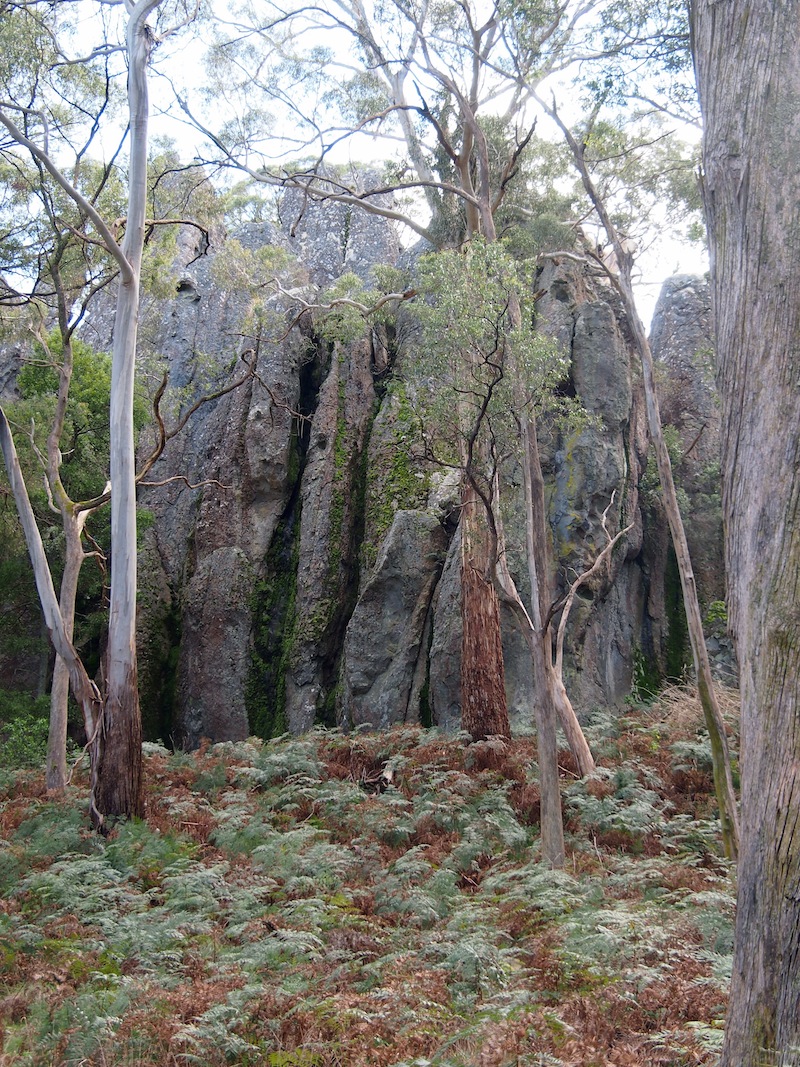
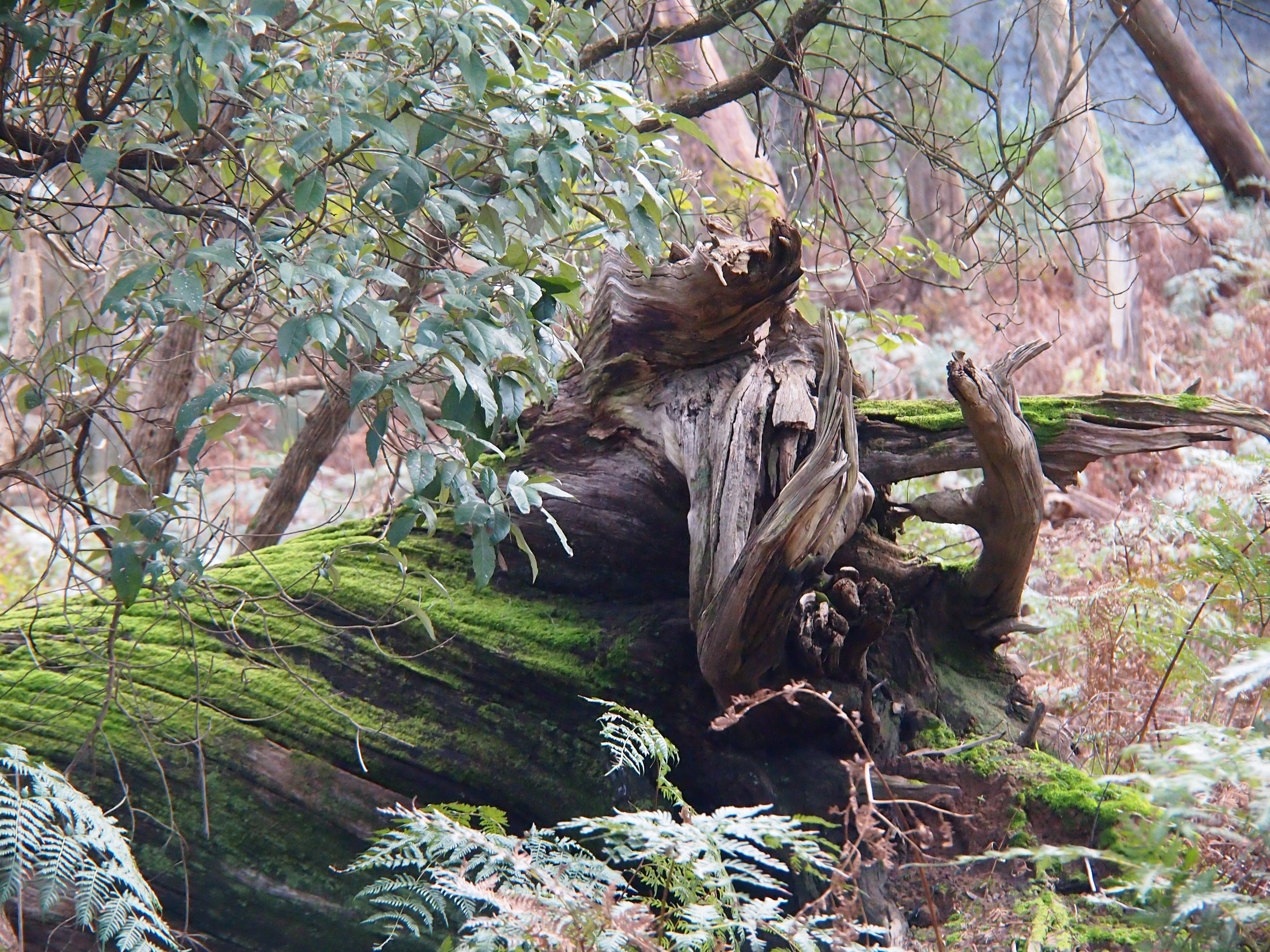
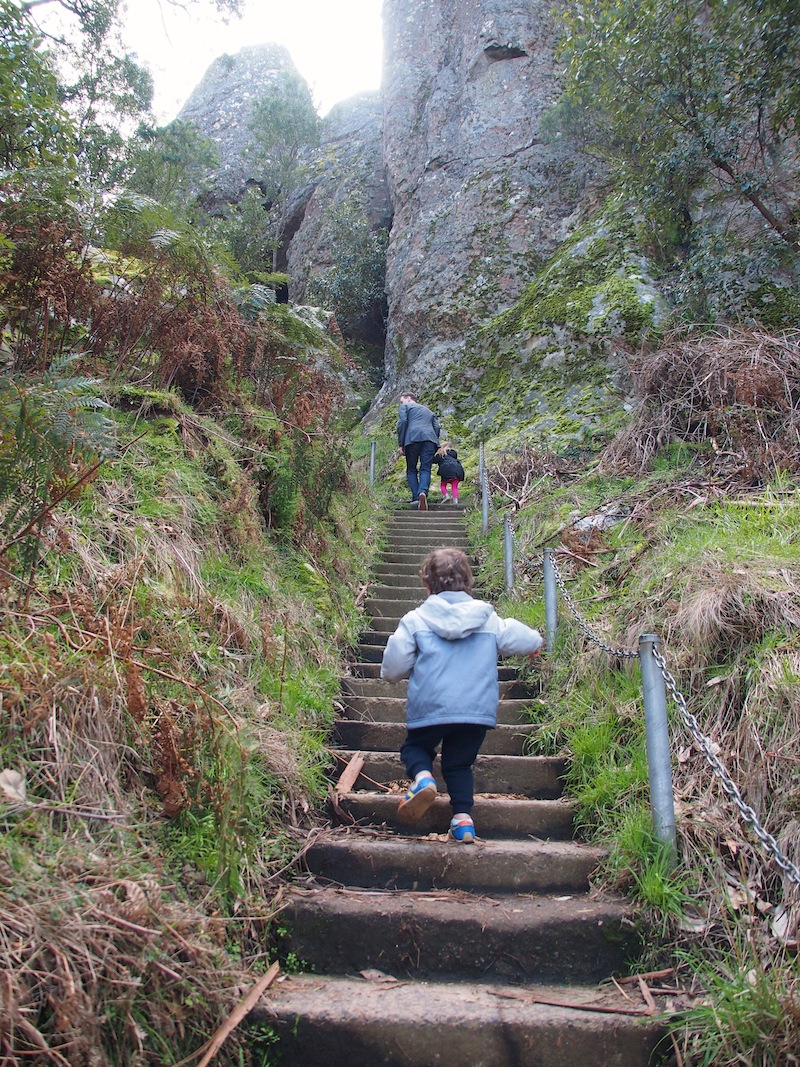
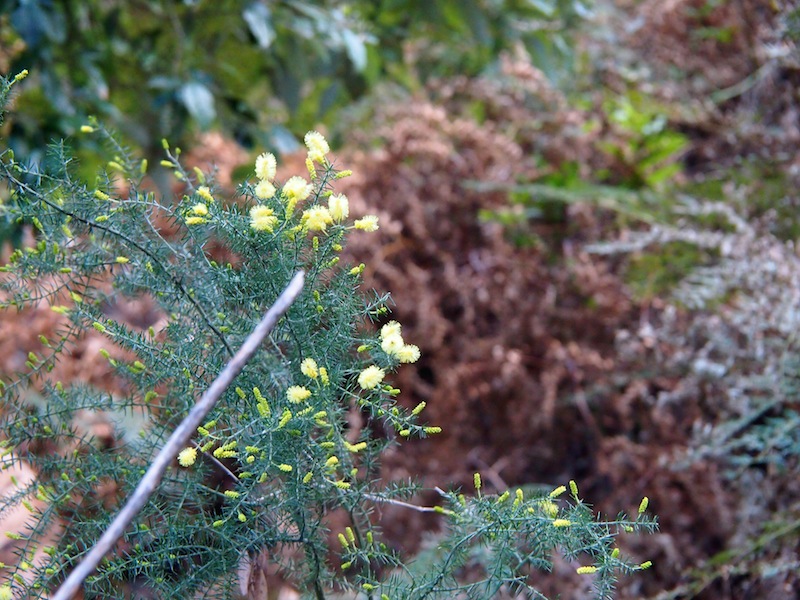
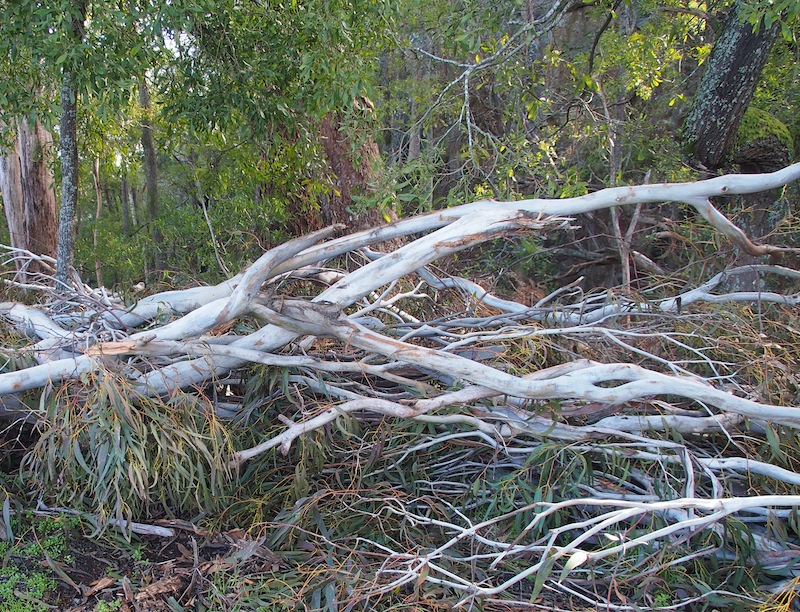
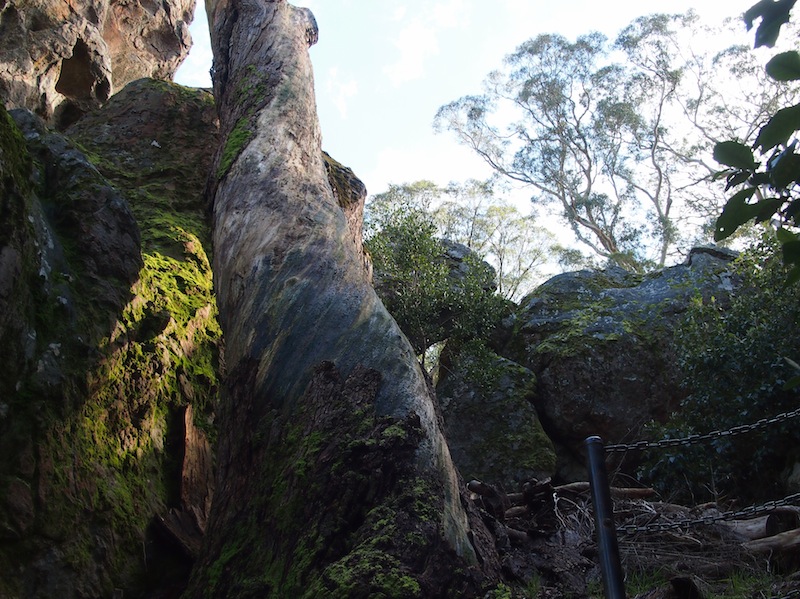
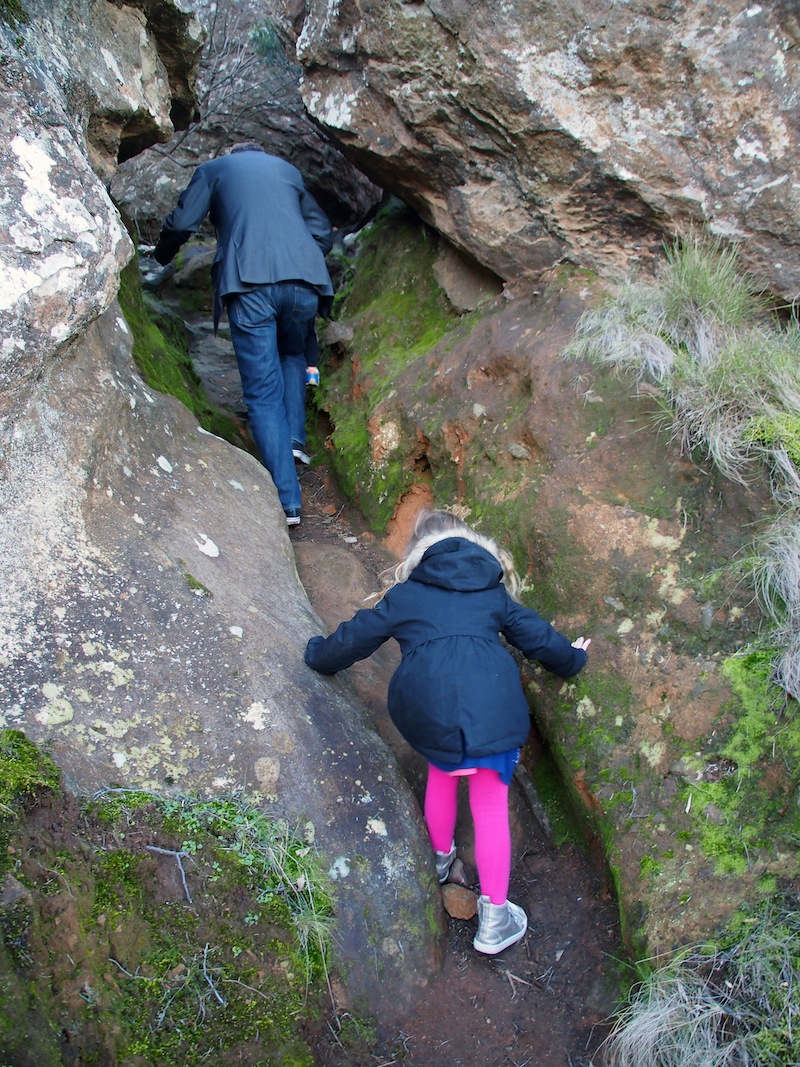
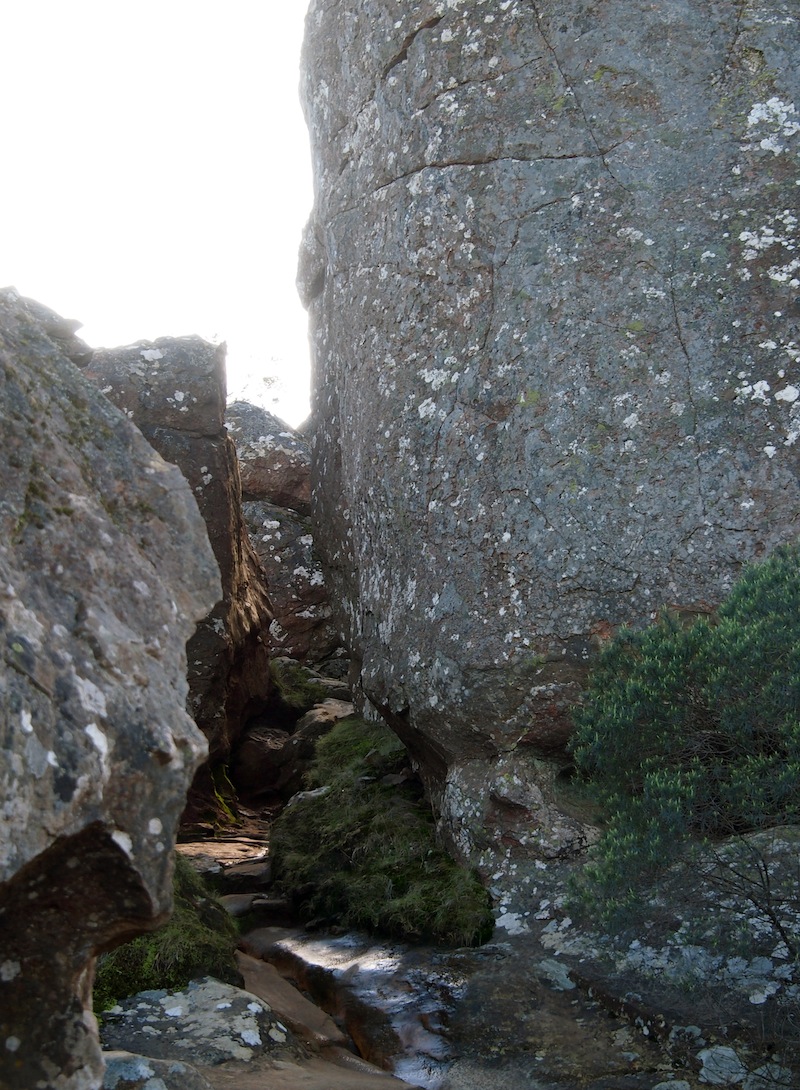
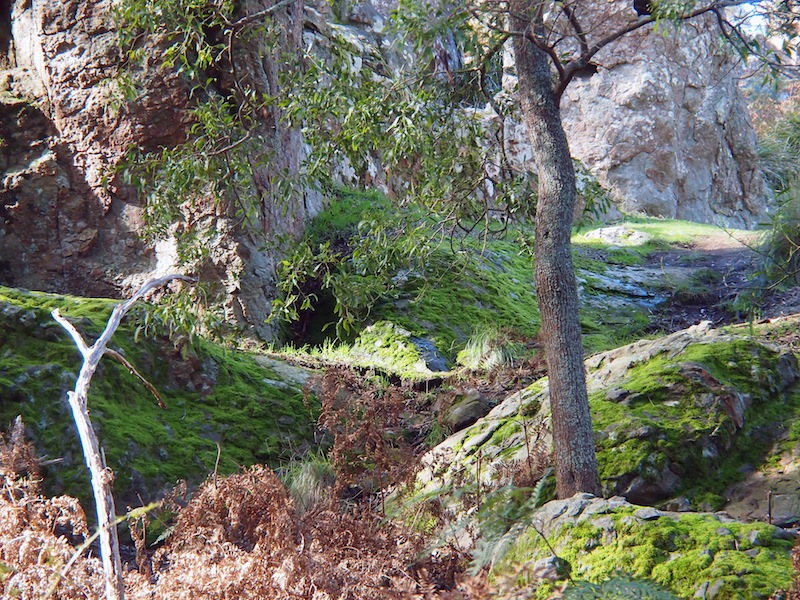
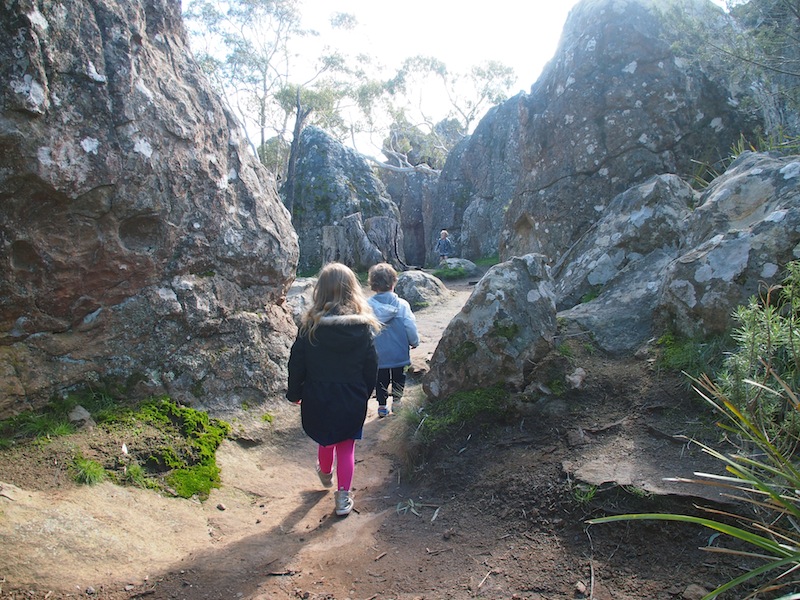
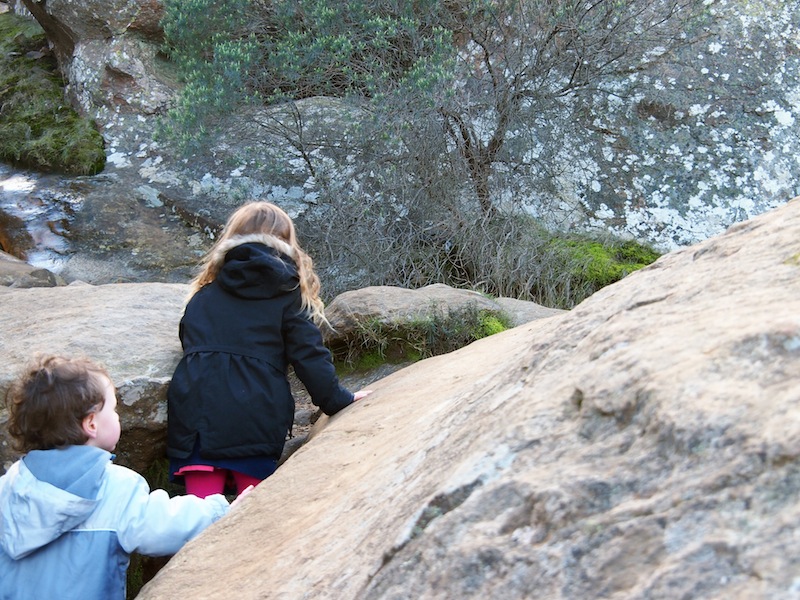
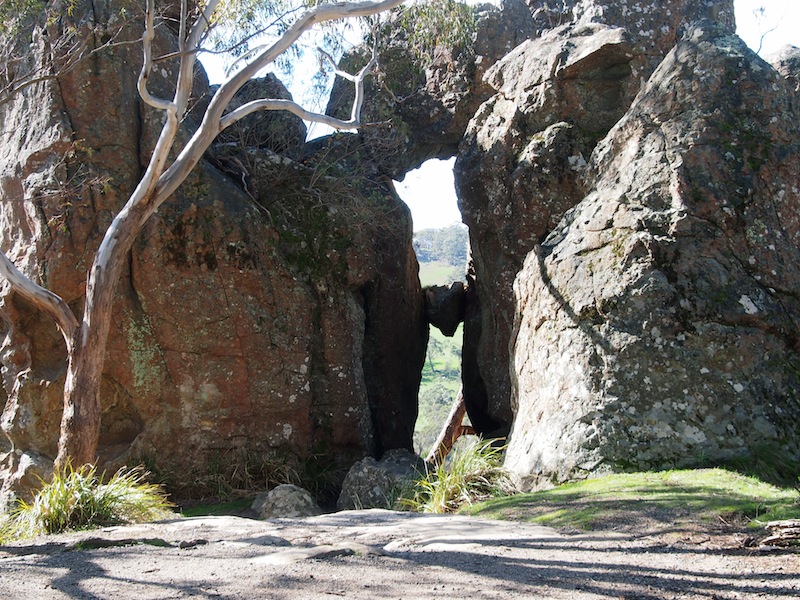
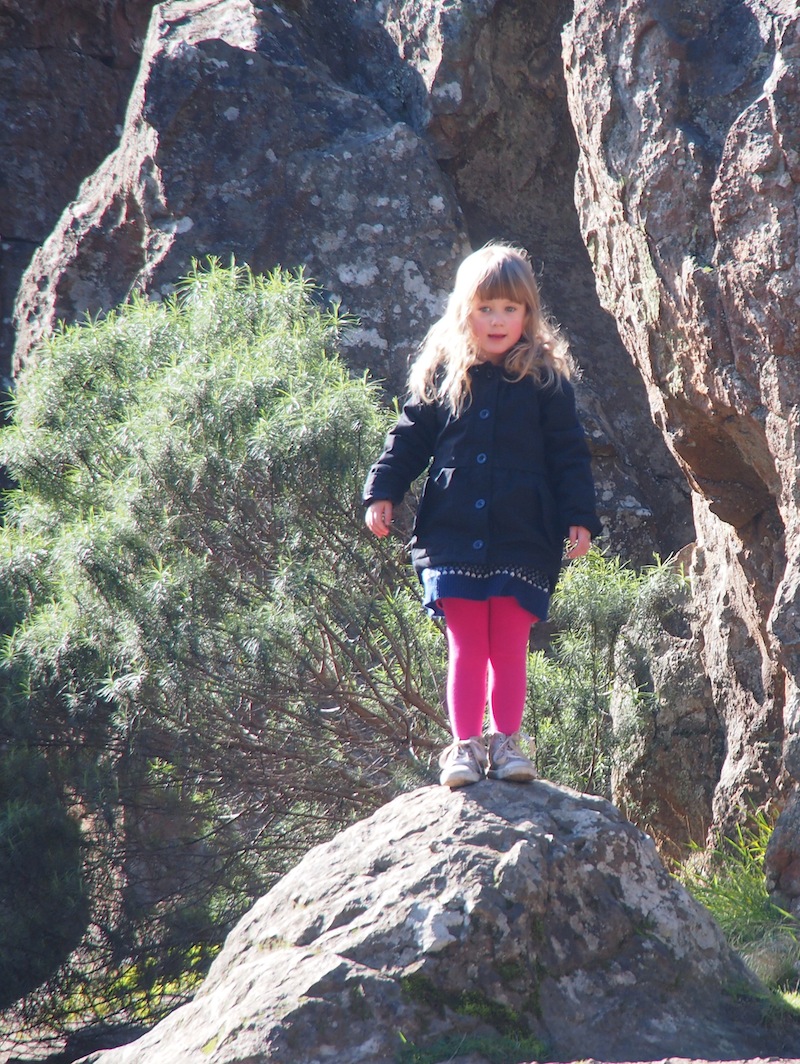
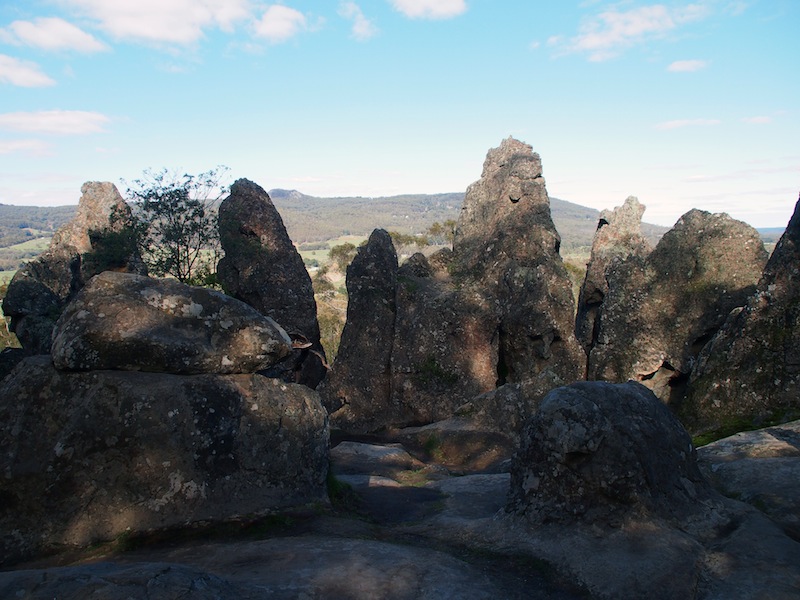
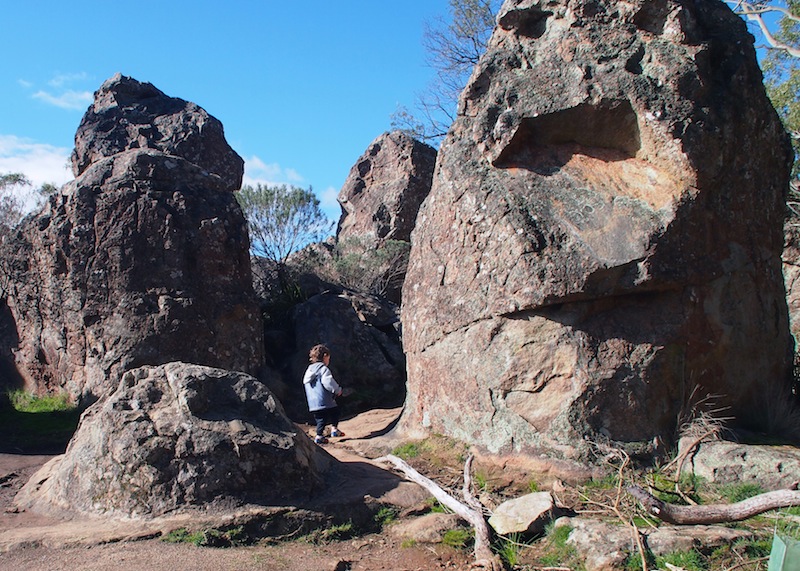
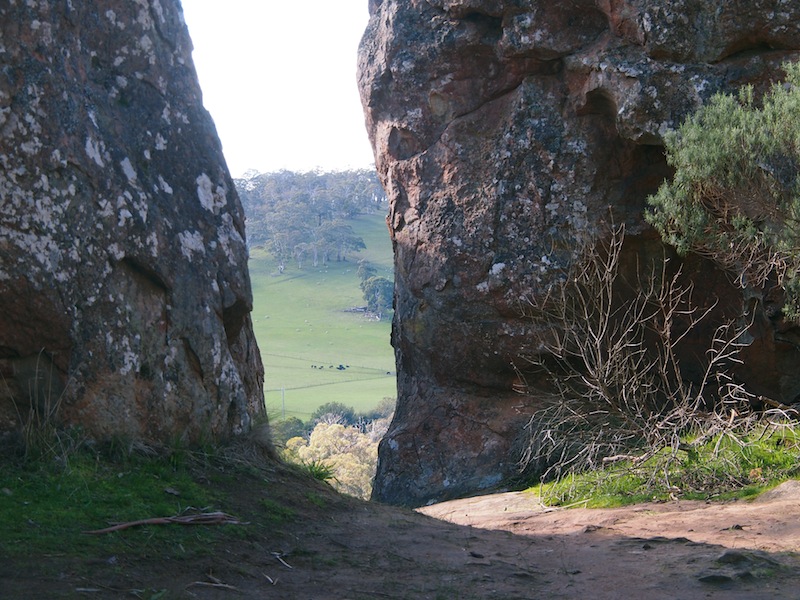
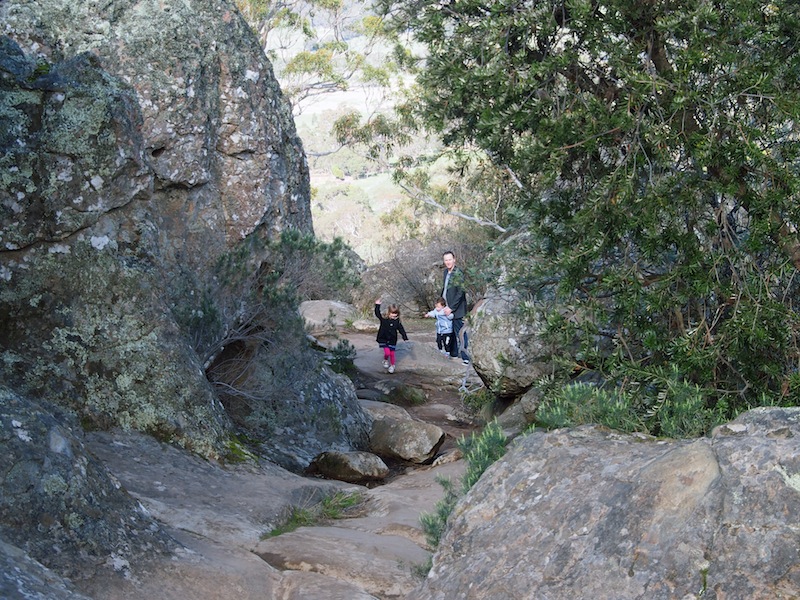
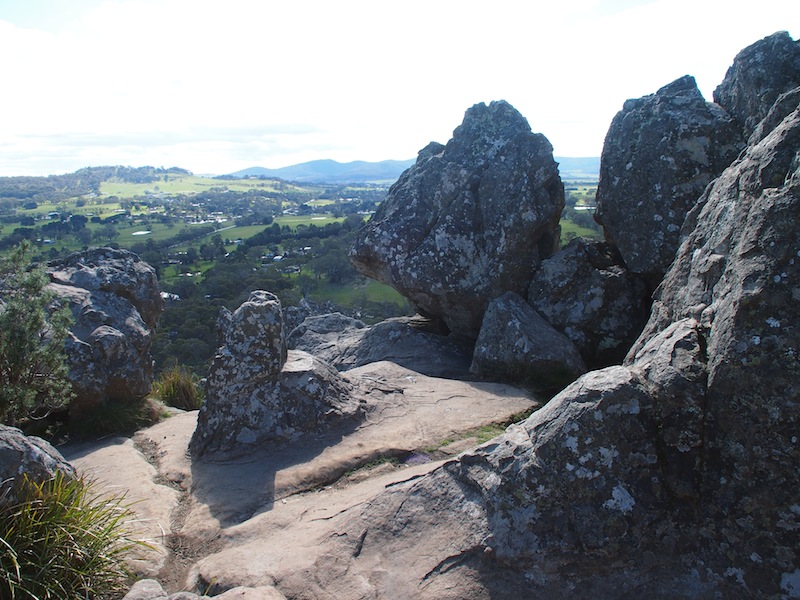
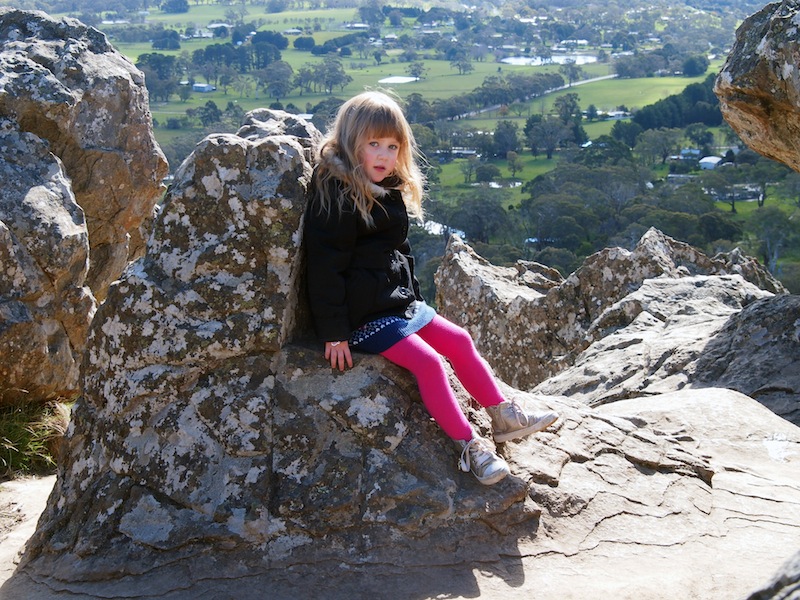
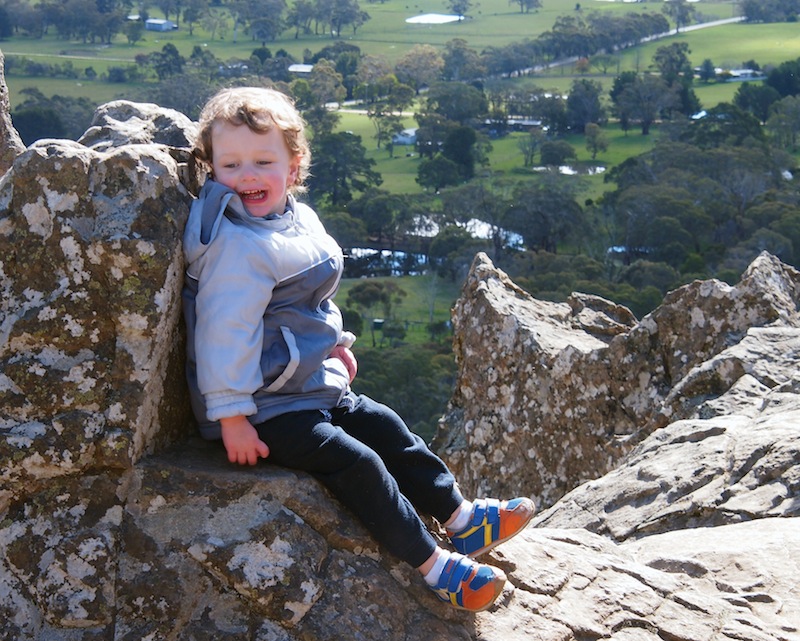
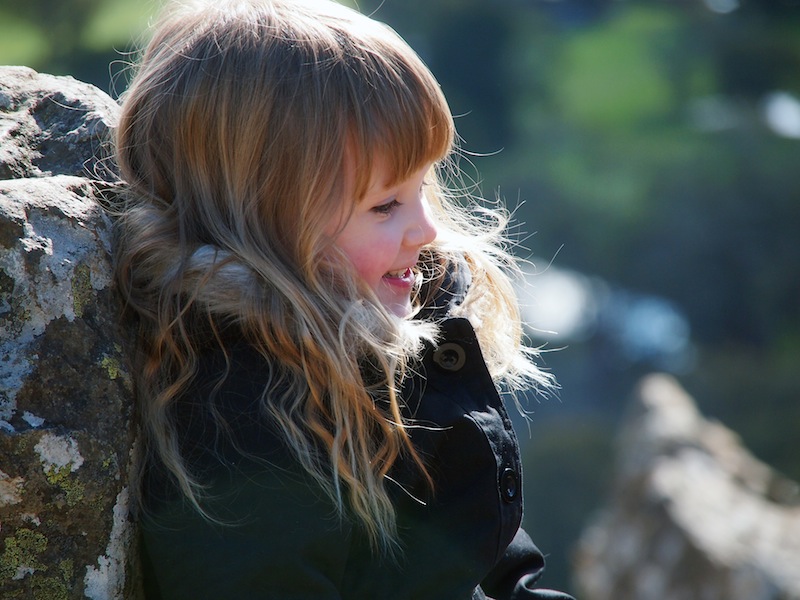
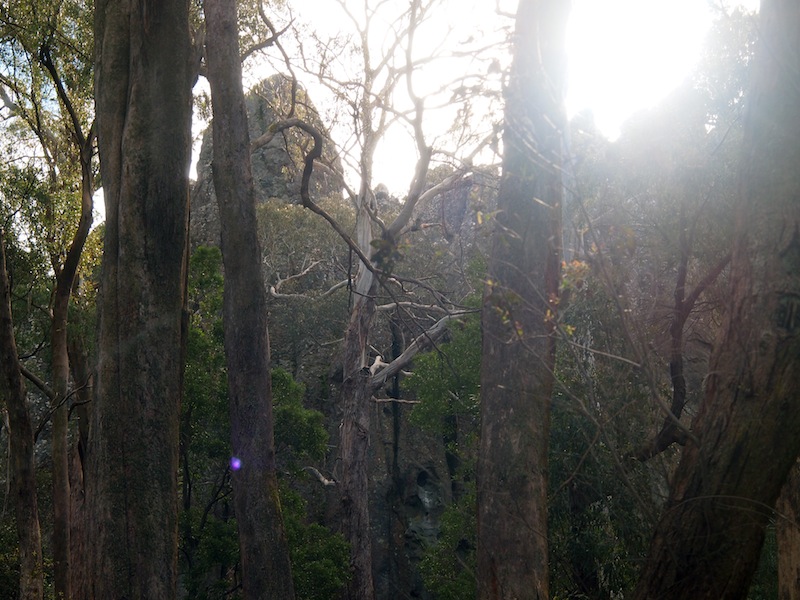
"Let's climb!" shouted Ralph. And so we climbed, free of foreboding.
In the shadow of those great rocks was no ominous hum, no sudden chill, no tingling premonition of hidden watchers' eyes. Instead, there was sunlight trickling through old bracken and ferns. Filtered water splashing out of rocks. A tiny boulder in the shape of a love-heart, wedged between two giants and framing a window to the bottom of the world.
"Let's climb!" said Ralph again. So we ventured off the pathway and scrambled over rocks and in between narrow passes and under natural bridges and, all the while, we found sunlight and clean air and great beauty... and no ghosts.
When you come alone to a place as ancient and spirit-filled as Hanging Rock, secrets whisper at you and watch you from just inside the other plane, and goosebumps come as naturally as breathing. The boundary between imagination and experience is blurred, and you are at the mercy of Place.
When you come in the company of two small children, however, it is hard to hear the spirits over the coughs and sneezes and "My legs are tired!" and "Let's have a race!" and giggles and kisses and "Can I have a banana?" and "Can you carry me?"
I thought the spirits had left Hanging Rock, at least while we were there, retreating into caves to find silence away from our relentless noise. But as I prepared these photographs last night to share with you, and I realised the ghosts had been there all along, watching, as we climbed.
Can you see them? In the strange shadows and sometimes-odd light, and in the many, many faces in the boulders?
Ahhhhh, tread lightly!
Unplugged (again)
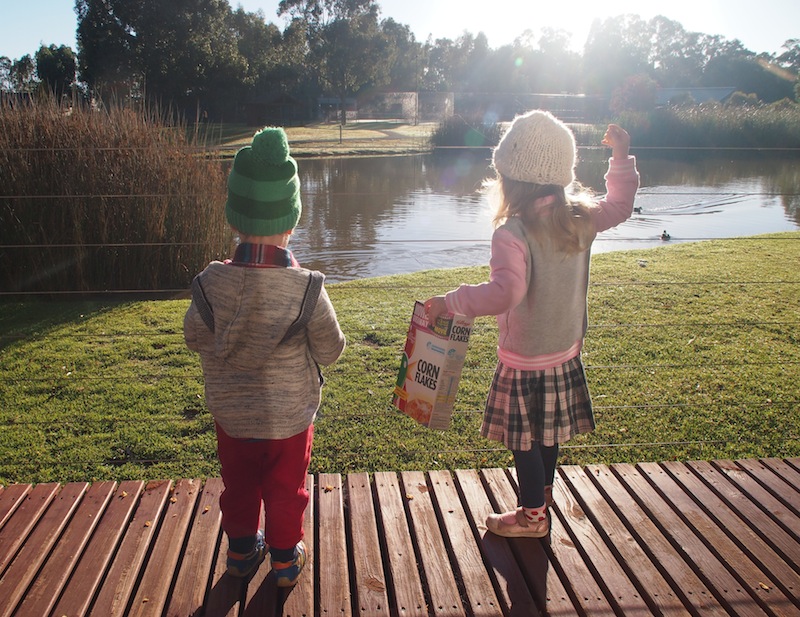 The day was bookended by the feeding of the ducks. Those ducks really love that we have come to stay in this cabin. All seven gazillion of them. My favourite is Stumpy. She was the first to find us, and appears, from the limp, as though she could do with a bit of Cornflake lovin'. My kids give her plenty.
The day was bookended by the feeding of the ducks. Those ducks really love that we have come to stay in this cabin. All seven gazillion of them. My favourite is Stumpy. She was the first to find us, and appears, from the limp, as though she could do with a bit of Cornflake lovin'. My kids give her plenty.
"Over here Mrs Duck!" the children call. "Mrs Duck" is any duck and every duck, except Stumpy. My children do not like to discriminate.
A sunrise walk, a visit to the petting farm, a bumpy hay-bale ride behind a tractor… When we do tourist, we really do Tourist.
Mid-morning, Mr B drives back to Melbourne for a work event he can't escape, while we stay and holiday. And so when the children nap after lunch, the reality of "unplugged" truly sinks in, and I am confronted with… me.
All me.
No Internet, no 'phone, no book to read, no magazine, just me. I can't go for a walk, because my children are sleeping in the room behind me. There is no work to do, no garden to tend, no housework to tackle, no meals to prepare. (We are eating mac 'n cheese out of the box tonight).
I sit, I stand, I gaze outside, I make a cup of tea. This would be a perfect time to write letters, I think to myself, and that's when I realise that in addition to failing to bring a book, I also failed to bring any writing paper. The backs of all our maps and tourist brochures are covered with 'terms and conditions' and, just as I am about to give up, I clap eyes on the cereal boxes.
First, I tear apart the box of Cornflakes we had bought for the ducks. Take my tea outside to the balcony, and start to write. When the Cornflakes box is completely covered, it is time to bust apart the holiday Coco Pops. I am just eyeing the mac 'n cheese box when the kids wake up.
We spend the next three hours playing. I mean, really playing. I have nothing else to do, worry about, look at, think about, but my kids. I had thought that quitting Facebook and Twitter and a life generally free from social media (apart from the odd Instagram photograph) helped me be more present while my kids were playing. But the absence of housework or paid work or emails or text messages or phone calls or book-notes to make or letters to write or books or blogs or magazines or letters to read takes things to a whole other level.
Today, I am Fun Mum. We are explorers, seeking ancient ruins in the sand pit. We are all manner of emergency services, putting out fires and rescuing the injured and attending accidents. I am a burglar, being chased by tiny police in those tiny toddler-cars that you pedal with your feet, like the Flintstones. I am a baby, who simply refuses to behave.
At the end of our games, as we wander hand in hand back to our cabin, Ralph announces "I'm tired Mummy, I want to go to sleep." This is unprecedented. The poor kid is barely upright. At the cabin, he rallies long enough to feed the ducks and consume a barely mouthful of his dinner, and then it is time for bed. Scout is right behind him.
It is 6pm and all's quiet. I am alone with my thoughts again. I turn to the empty mac 'n cheese box and pick up a pen…
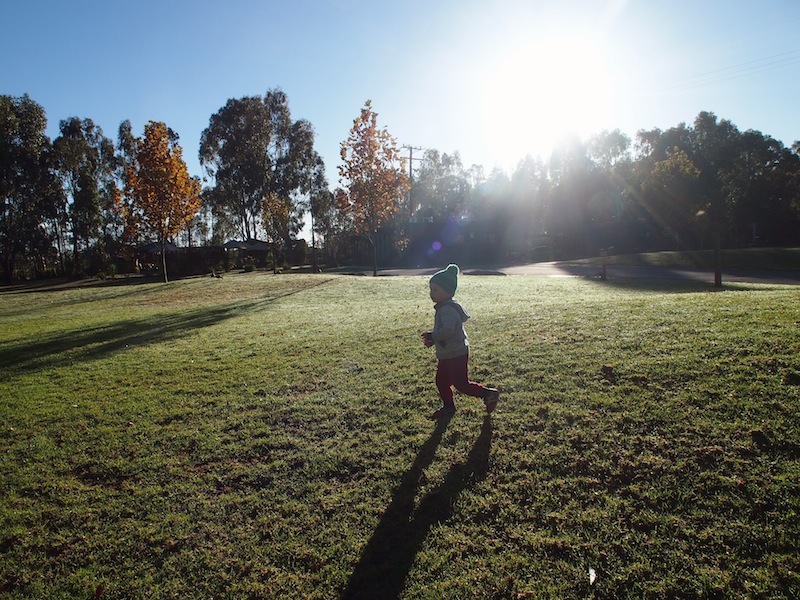
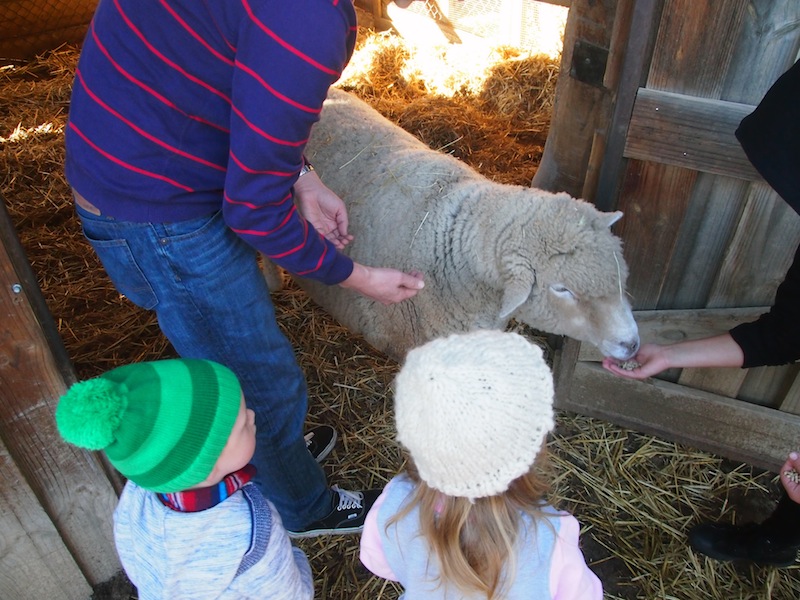
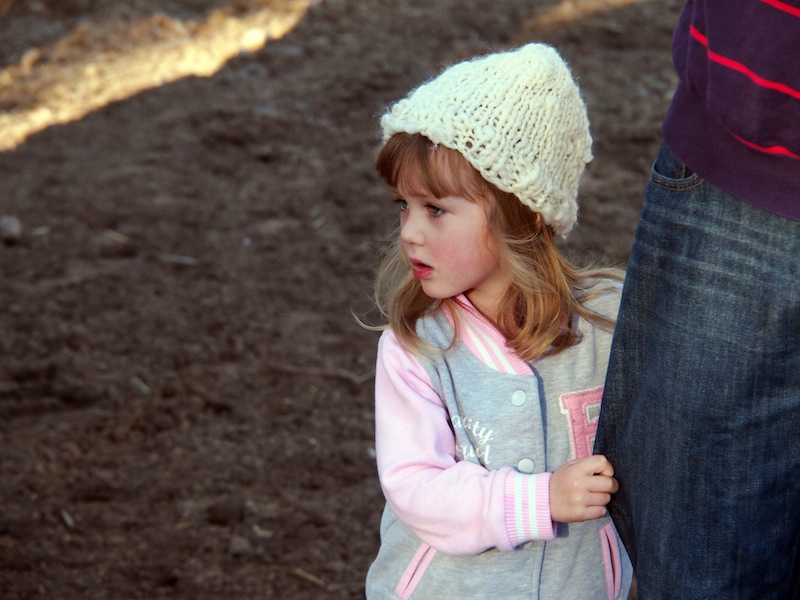
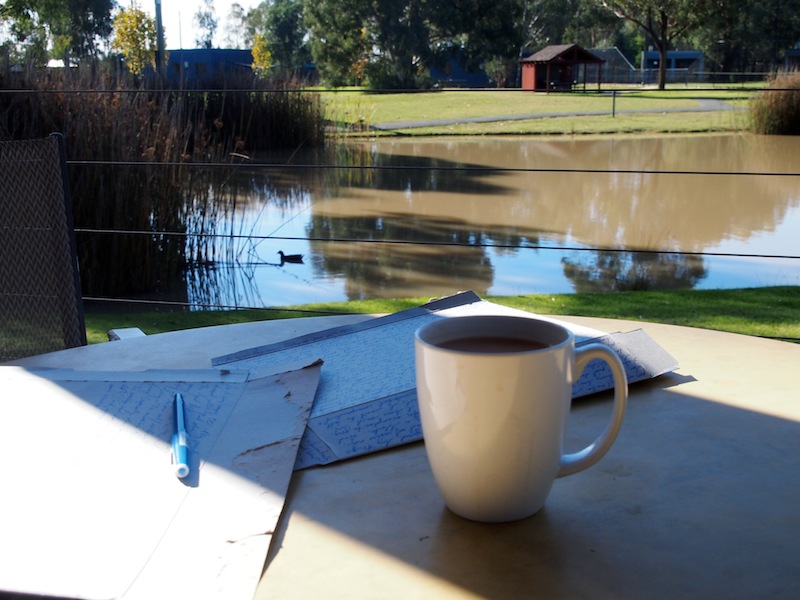
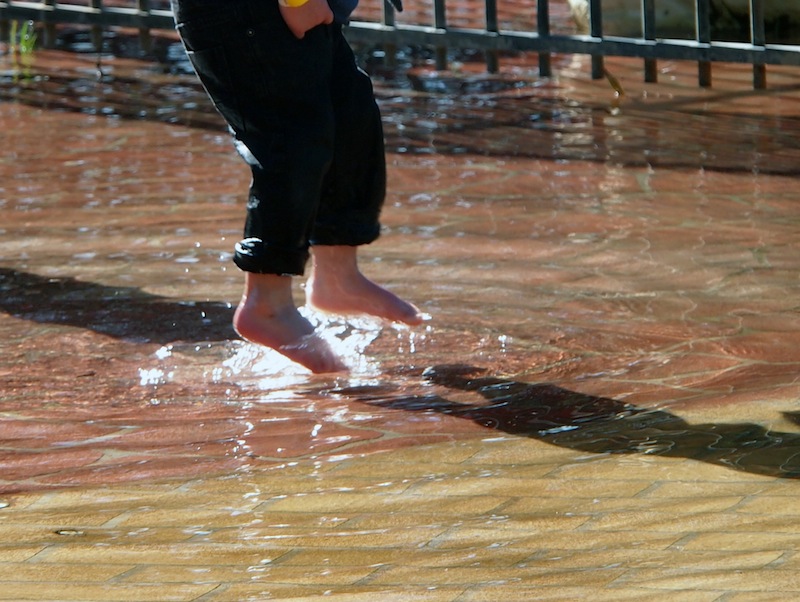
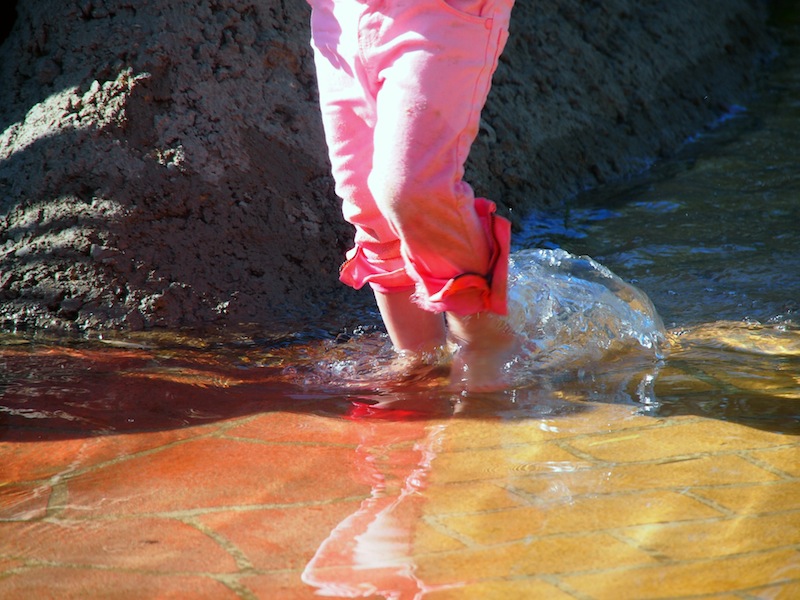
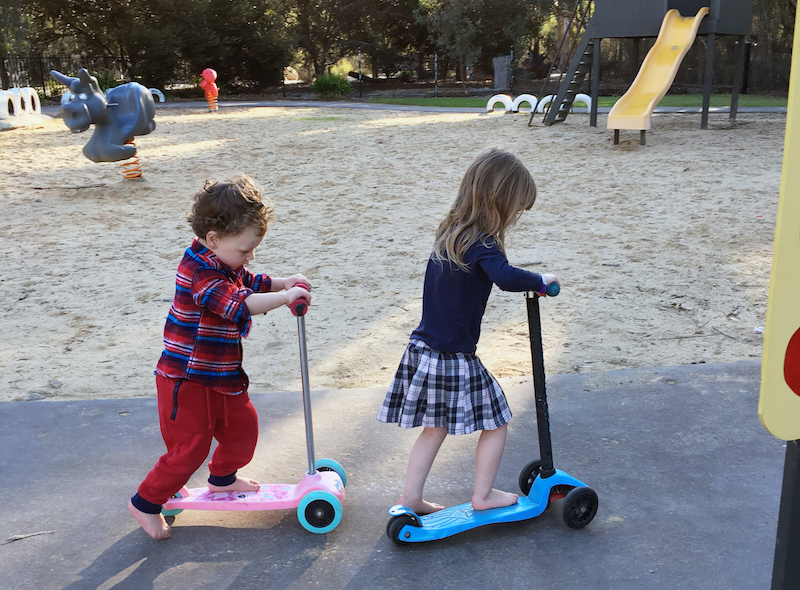
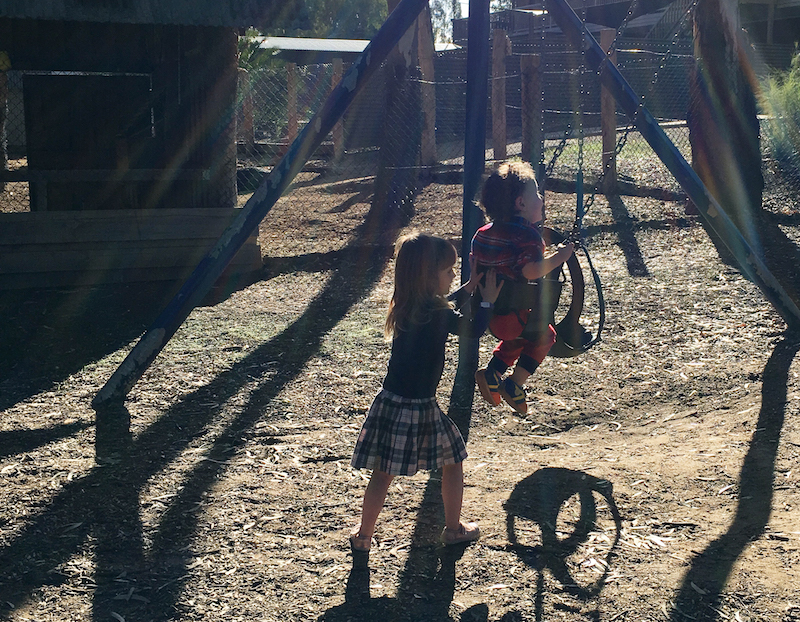
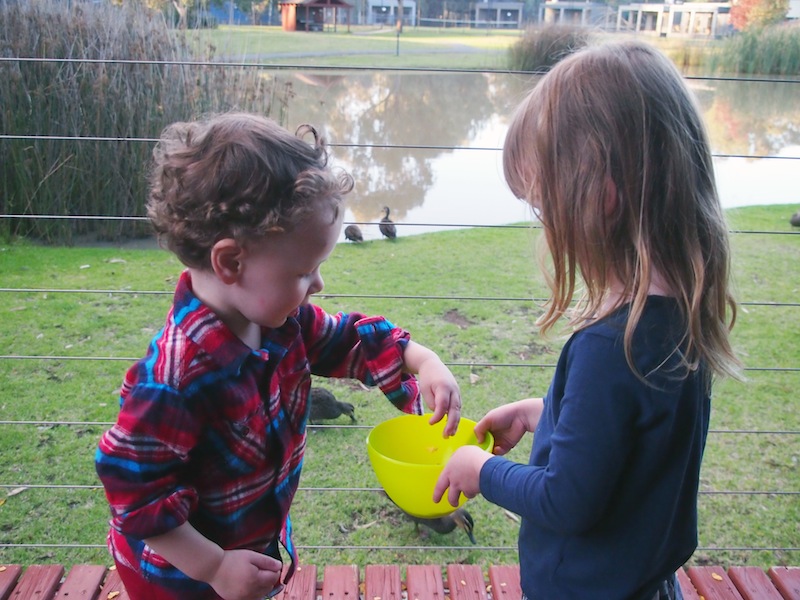
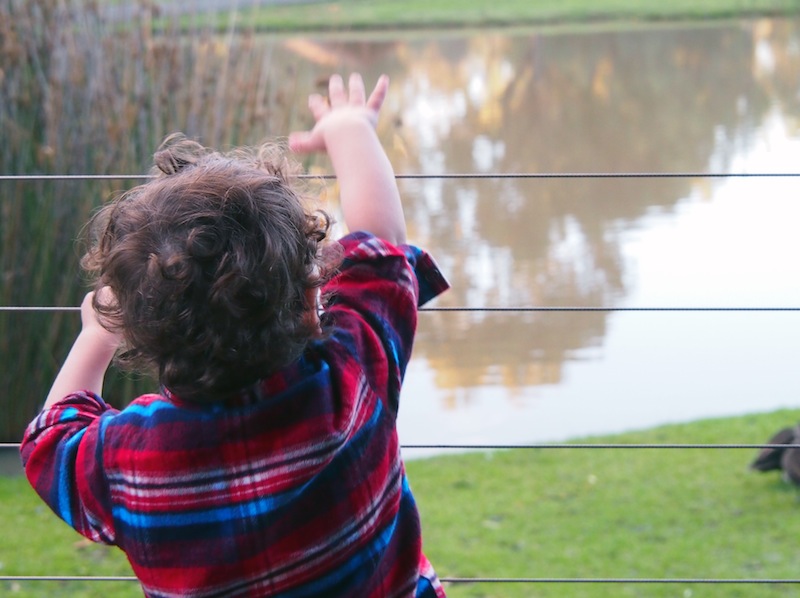
In which we visit Australia’s only booktown and purchase a fake pearl necklace, some plastic toys, and no books
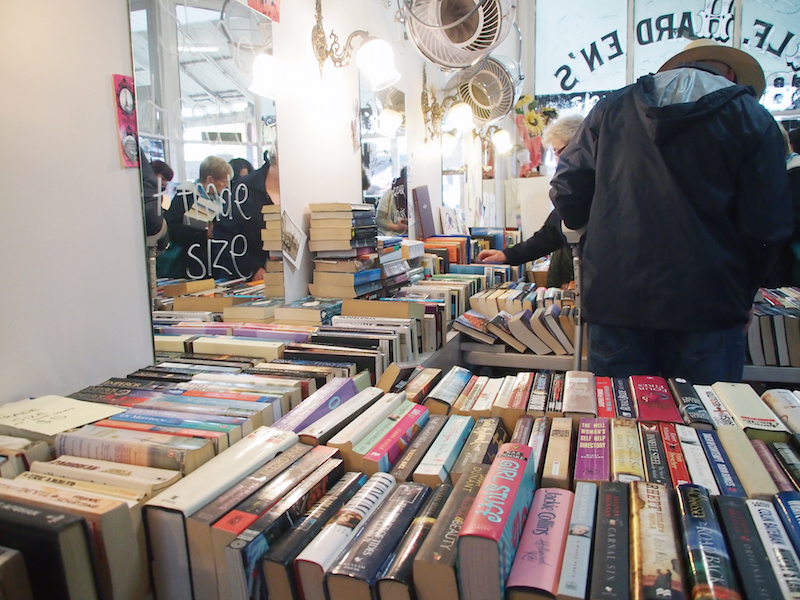
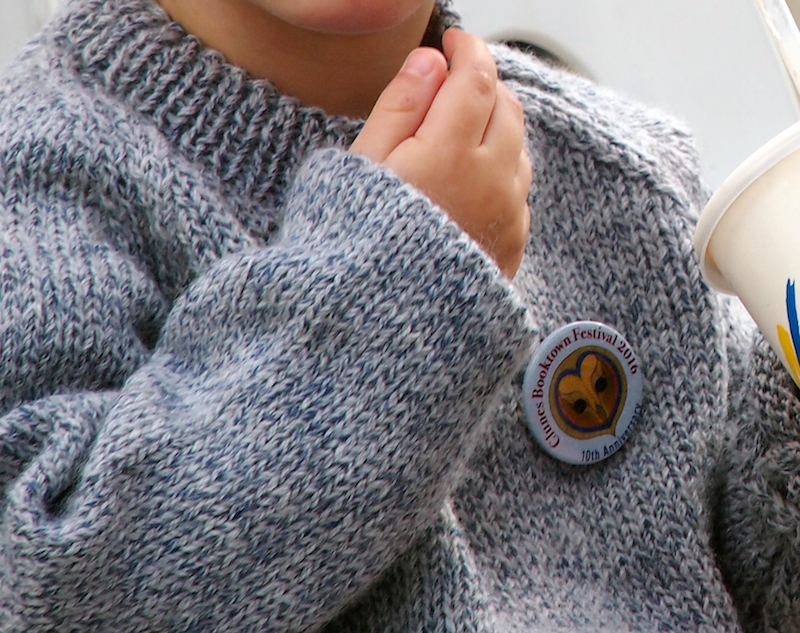
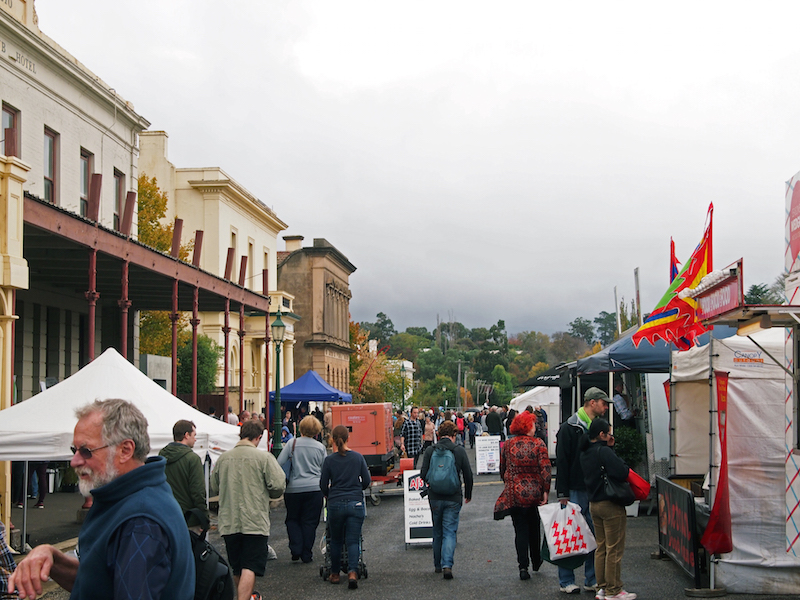
Book Town, defn: "A Book Town is a small rural town or village in which second-hand and antiquarian bookshops are concentrated. Most Book Towns have developed in villages of historic interest or of scenic beauty." International Organisation of Book Towns (IOB)
When gold was first discovered in Victoria, it was discovered in the pretty little village we now know as Clunes. Today, Clunes is home to 1600 people... and at least 15 bookstores. It is the only officially recognised "booktown" in the southern hemisphere, and one of only 17 in the world.
Once a year, this already very-literary town spills its books out into the streets, and literature completely takes over the town, for the Clunes Booktown Festival. I'm not kidding. You walk into the local hairdressing salon, complete with old-fashioned hair-dryers on the wall, and the rest of the salon is filled with books, wall to wall. Nearby at an antique store, furniture and curios have been moved out of the way to make room for more books. And inside the local cafes? You guessed it, more books. There are books on tables in the street, in market-stalls that line the middle of the road, out the front of the museum, in the post office, and spilling out of residents' garages.
Actors perform Shakespeare on a makeshift stage made out of a ring of hay-bales, children learn the antique art of book-binding, and storytellers and author-talks and book-signings continue throughout the day. The air is filled with the delicious smoke of a hundred food stalls and cafes and bakeries and coffee carts, and all the dogs look happy and the children even happier. It is bustling but not impossibly crowded, and essentially it is my idea of heaven.
When we visited Clunes on the weekend, the rain held off but made mist around the surrounding hills. The streets were wide and the gold-rush era architecture absolutely stunning, with original painted signage still on many of the shop windows and walls. I ate a pulled-pork-and-coleslaw filled roll at the Bread and Circus Provedore that I would recommend to anyone.
The only fly in my personal book-browsing, book-buying ointment turned out to be my "parent" status, since it would appear that hunting for books amidst piles of other books for hours on end is not something that the average toddler likes to do. Even when you give them spending money and say "go for it." Who knew? But since I happen to believe that being a parent is the best thing ever, even better than shopping for books, I'm not about to change that status any time soon.
So we went to the Clunes Booktown Festival and bought a double-string of fake pearls (Scout), a Peppa Pig activity-book with plastic duck toys (Ralph), delicious lunches for four, chocolate ice-cream (Scout), a chocolate milk-shake (Ralph)... and no books.
Yep, not one. But we're going back next year!
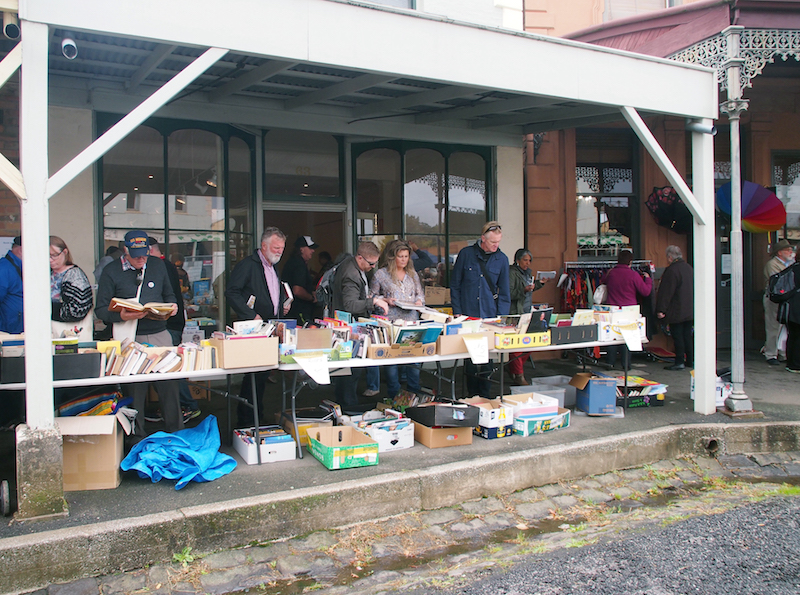
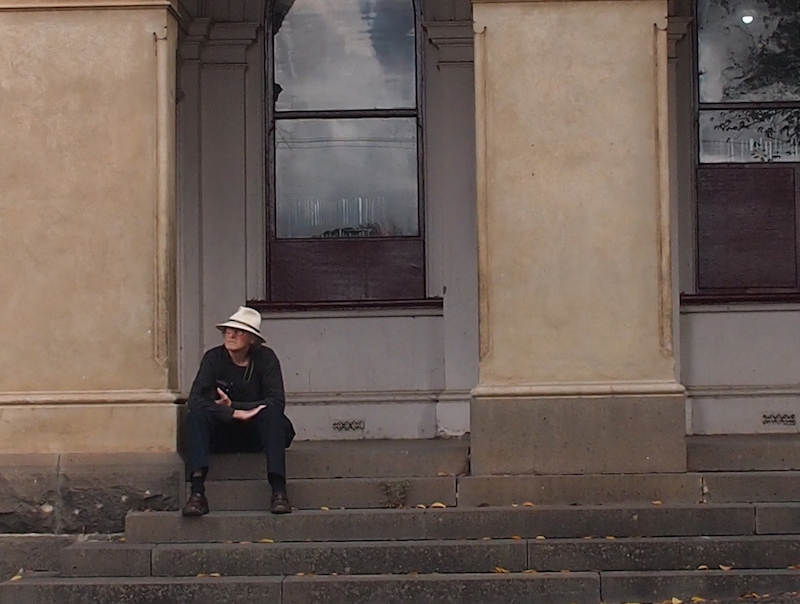
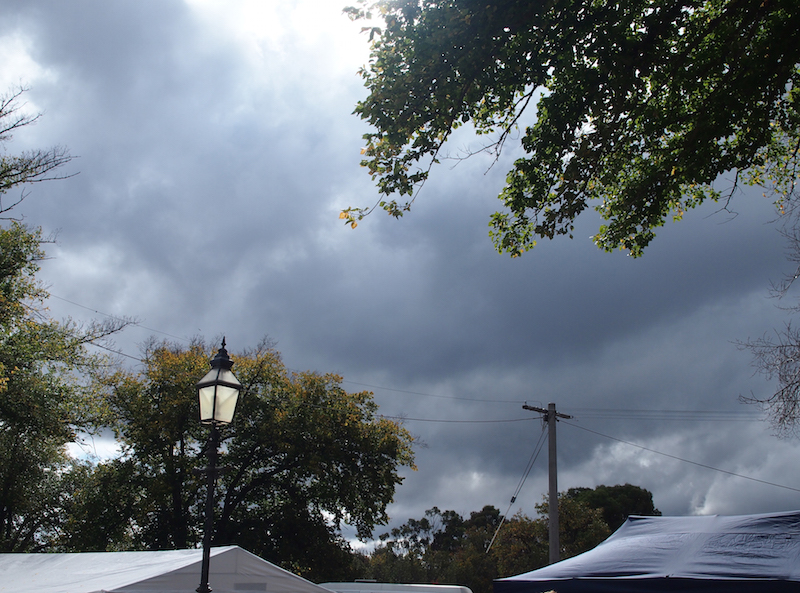
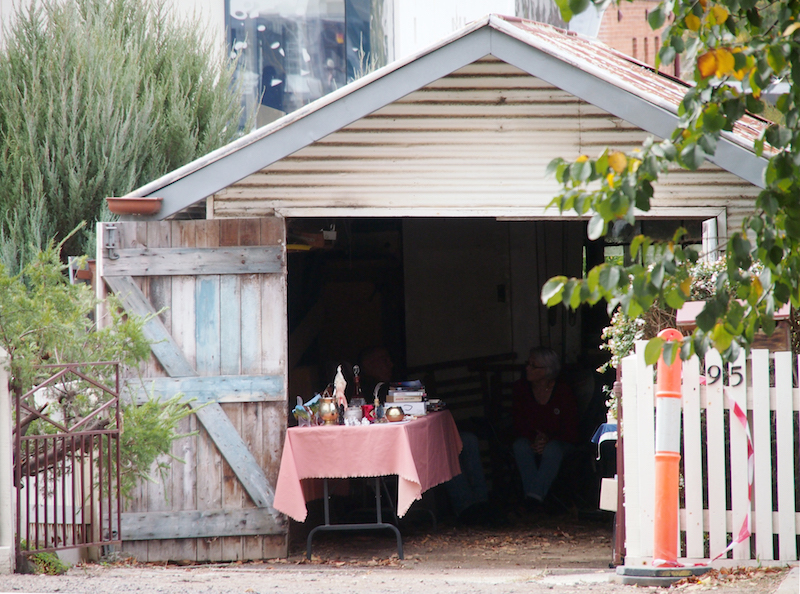
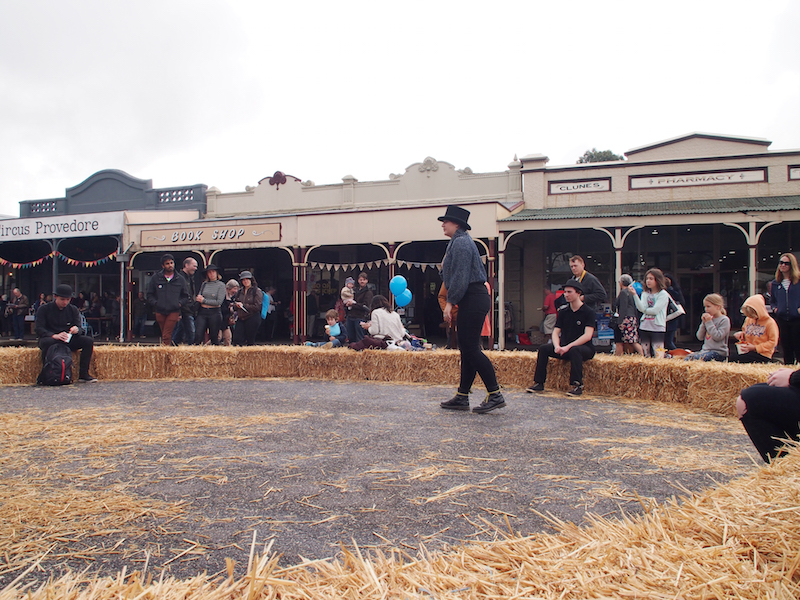
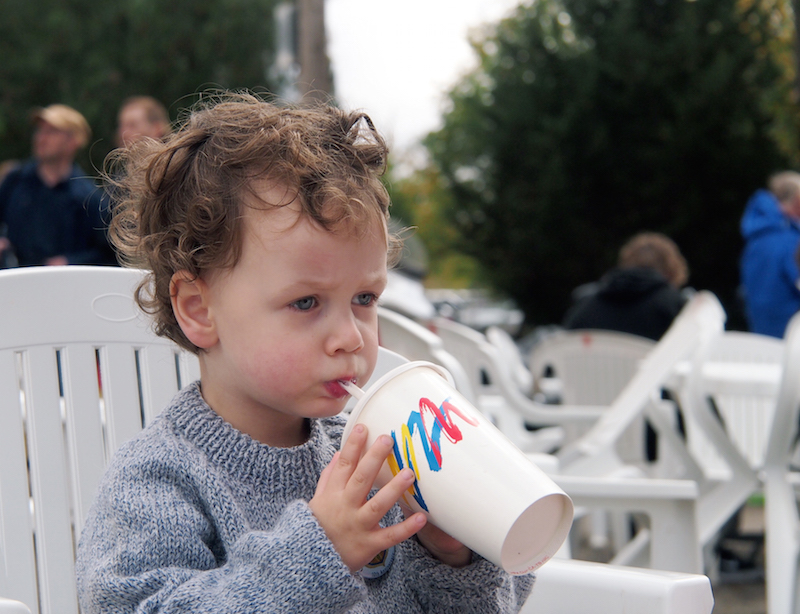
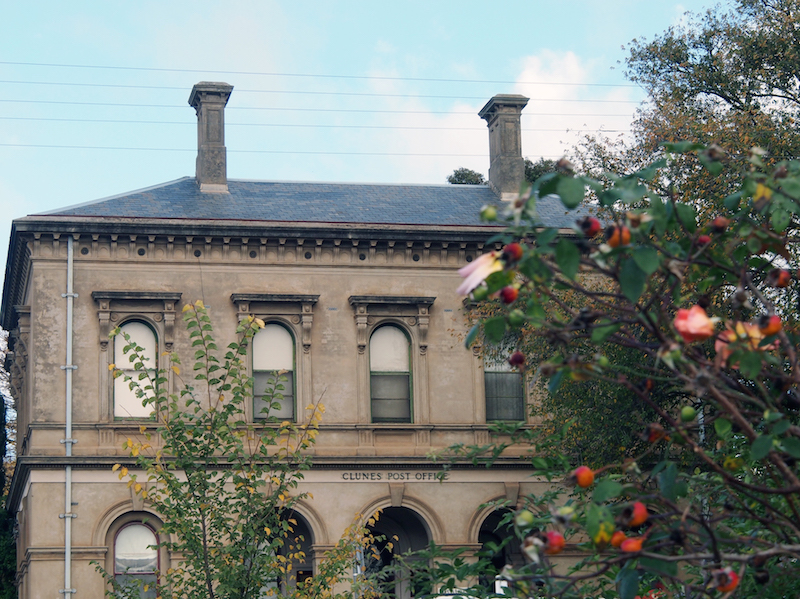
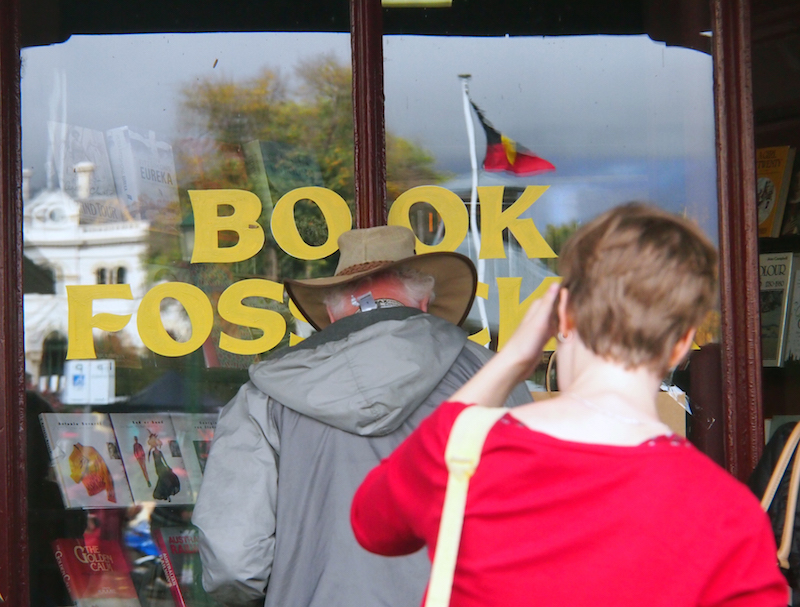
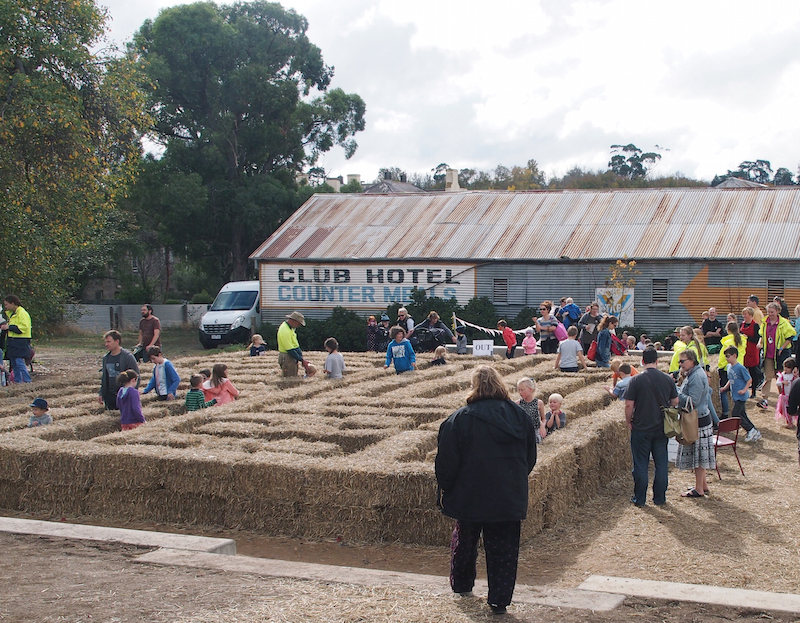
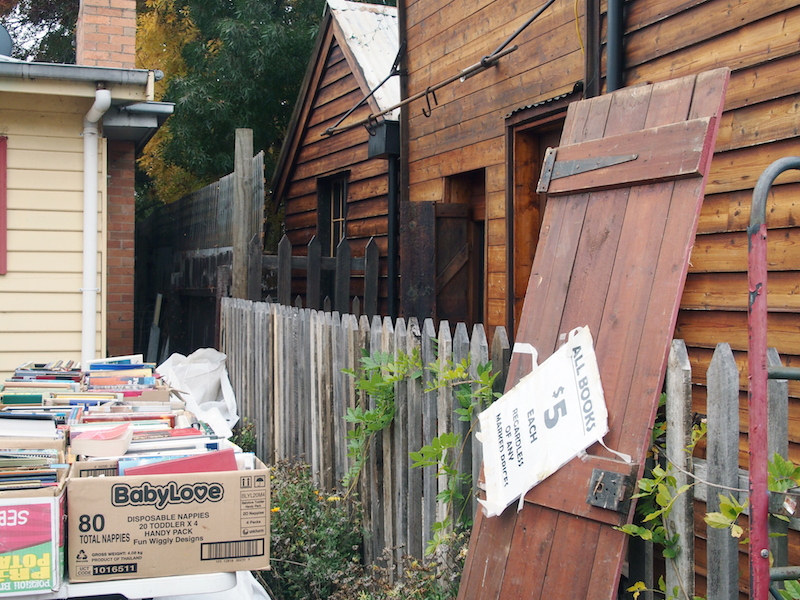
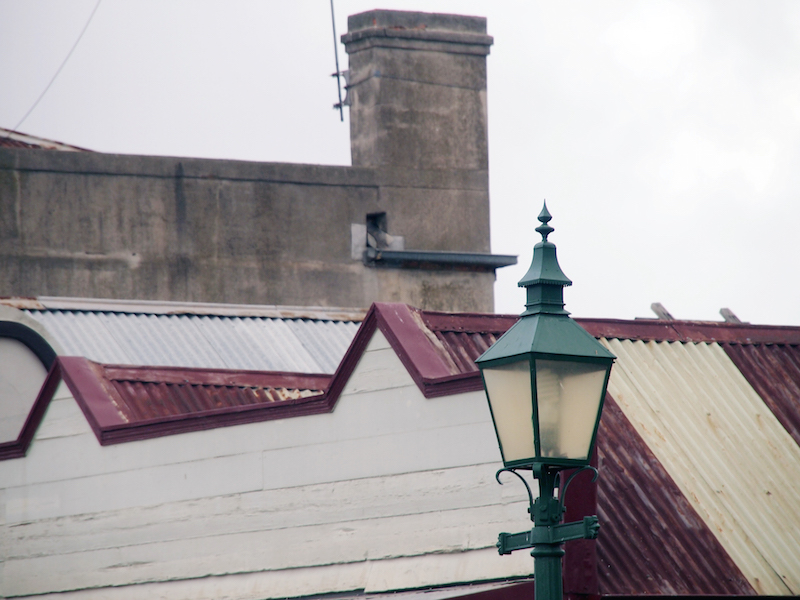
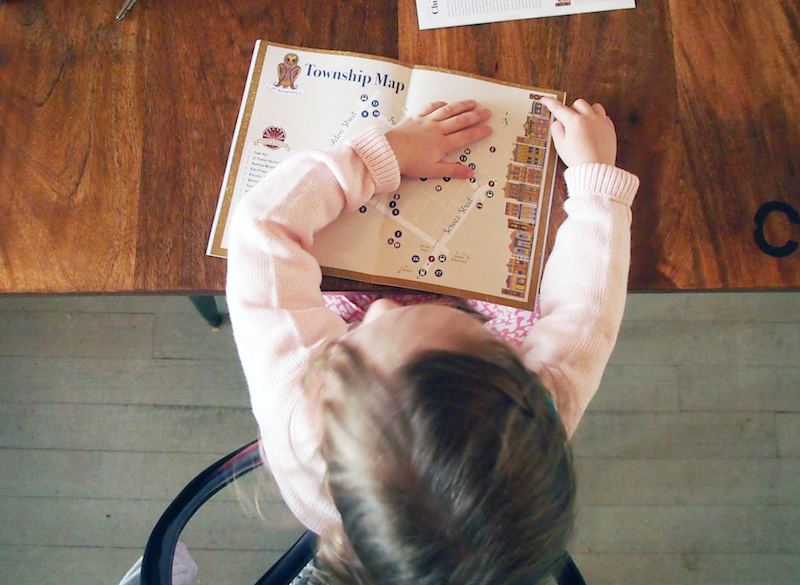
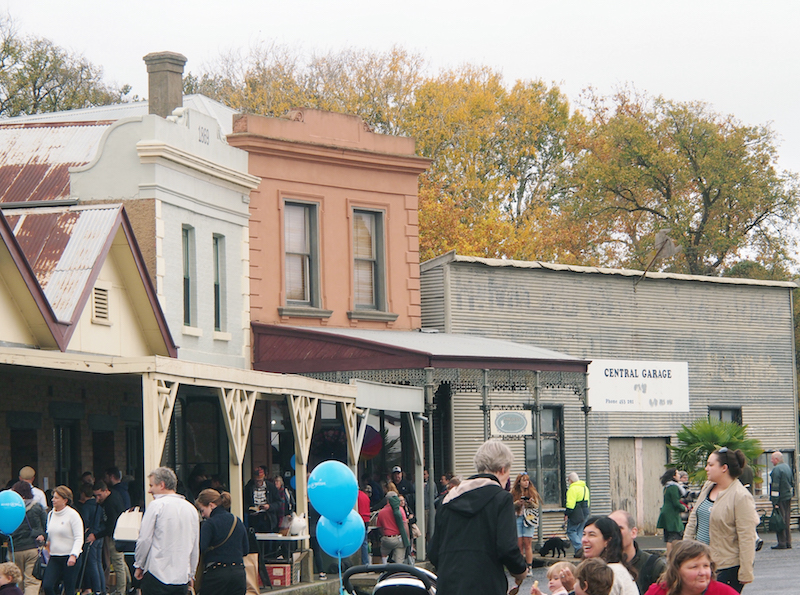
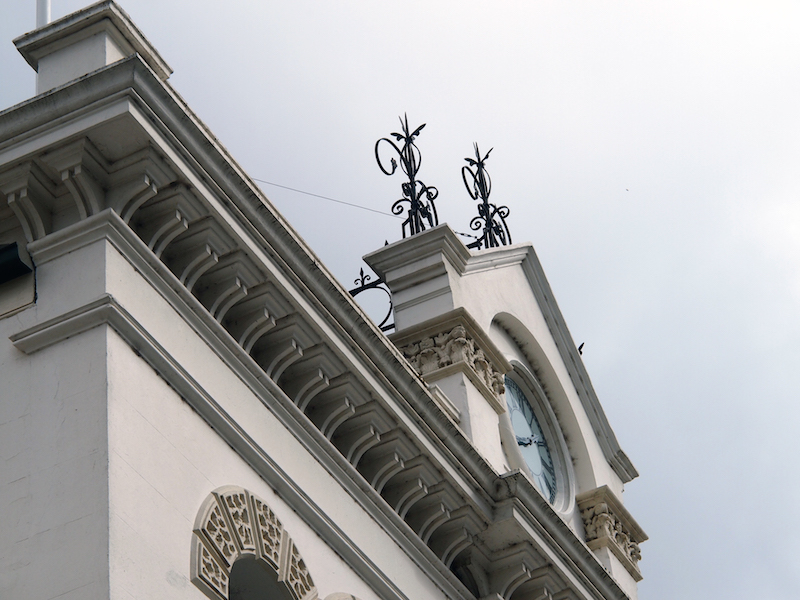
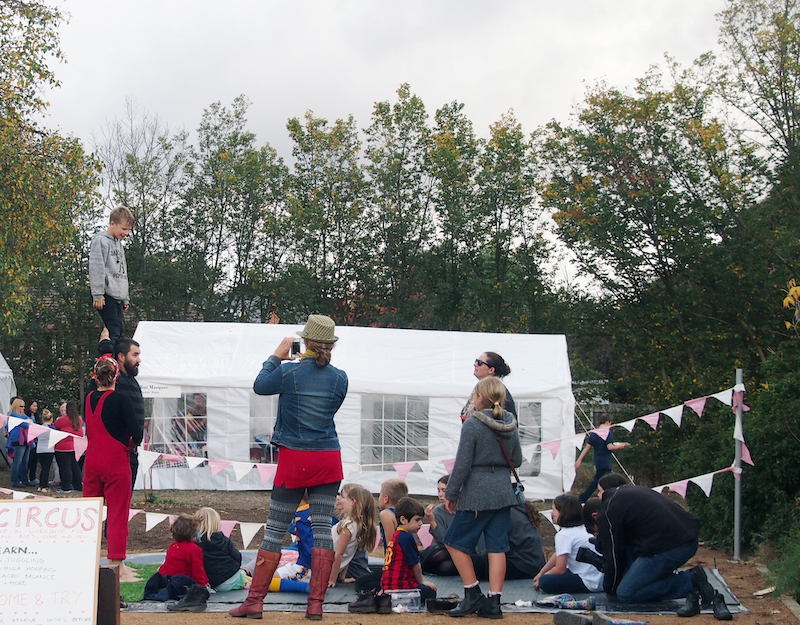
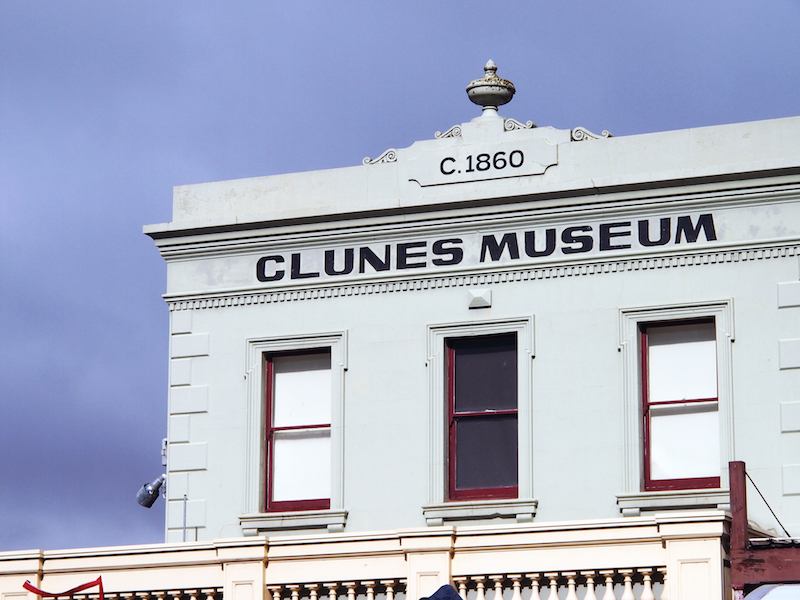
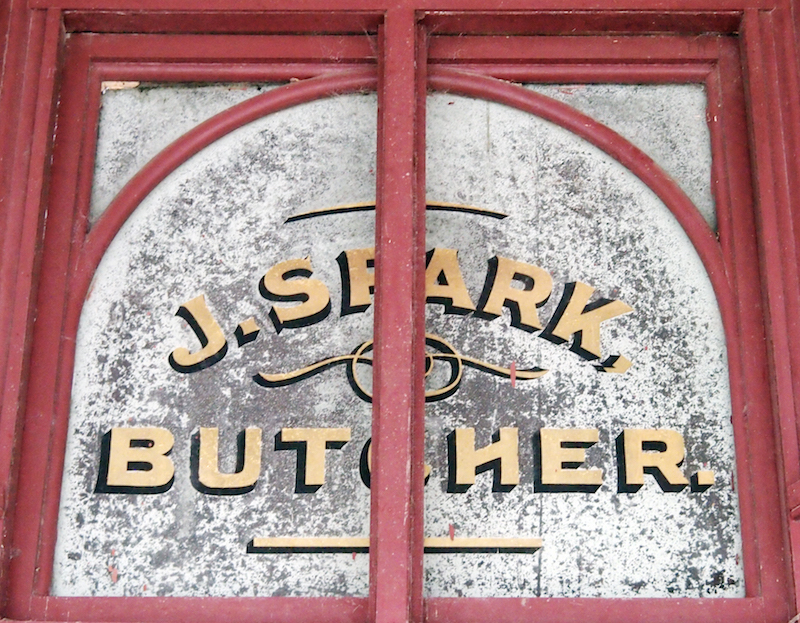
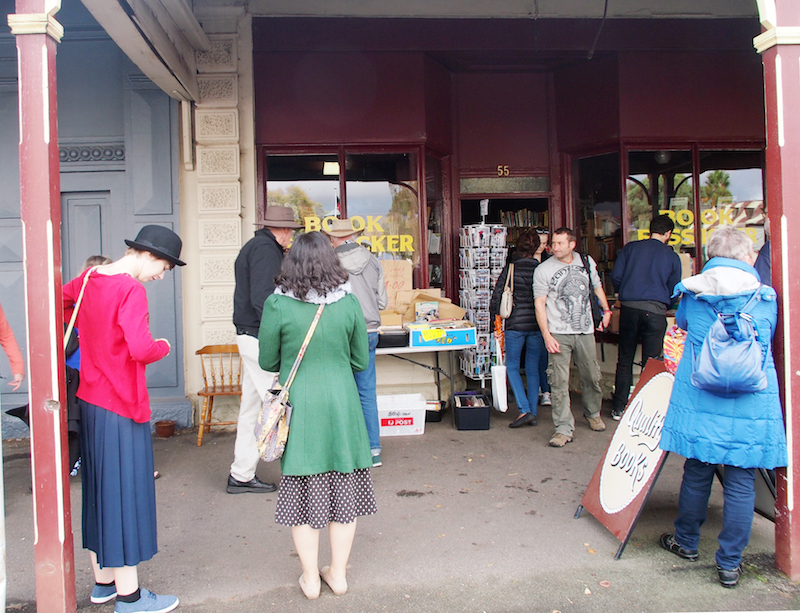
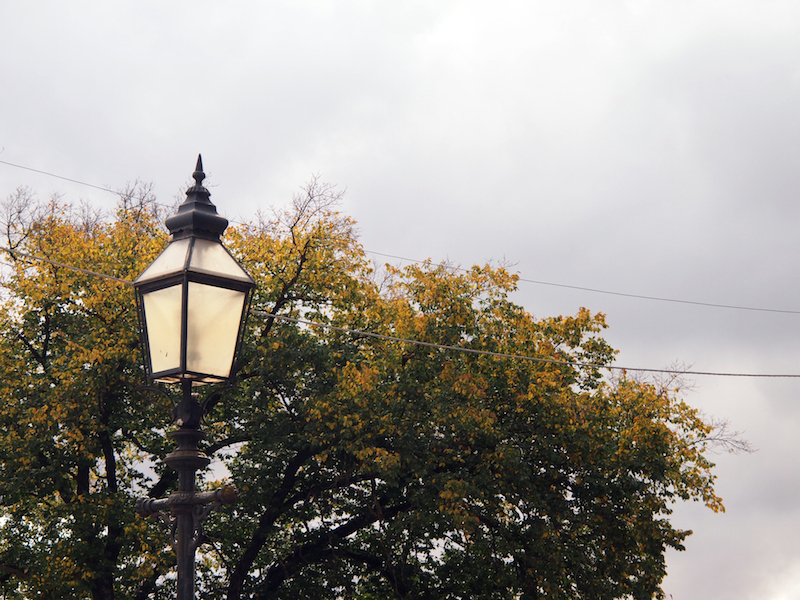
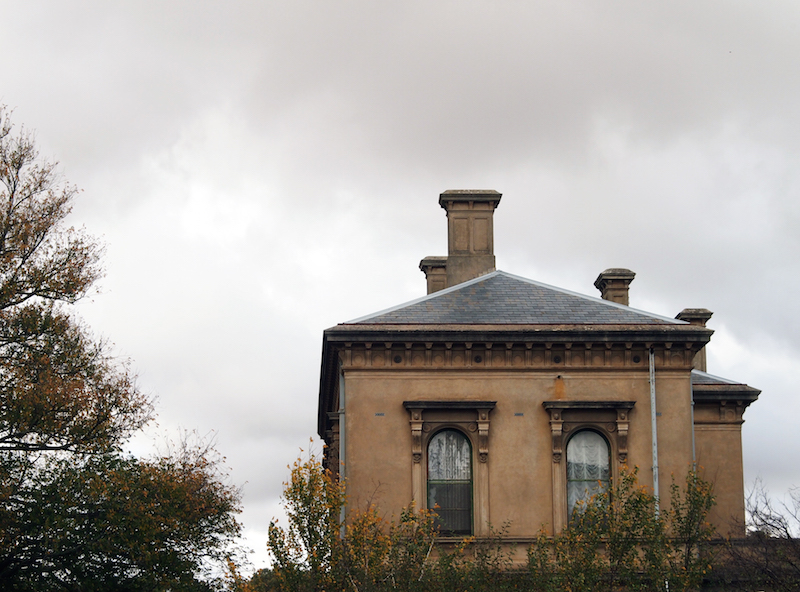
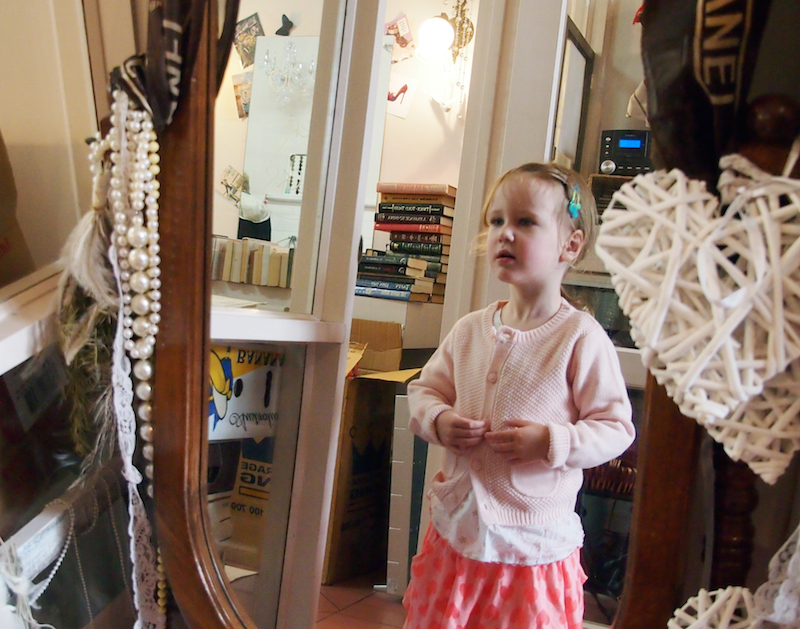
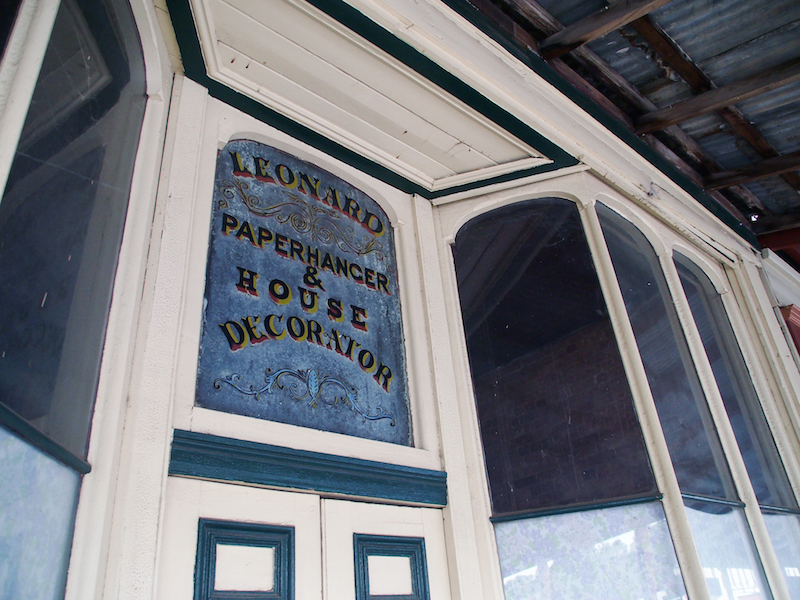
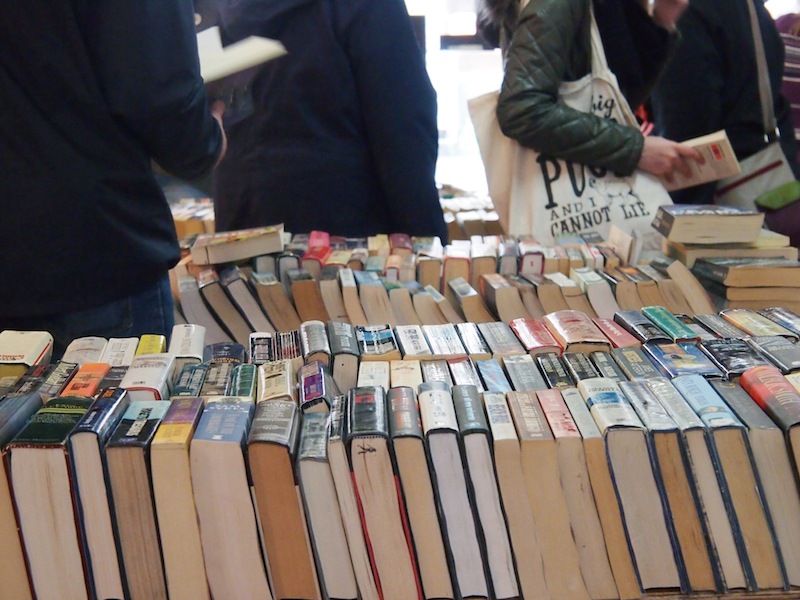
Dispatch from Victoria: Maldon
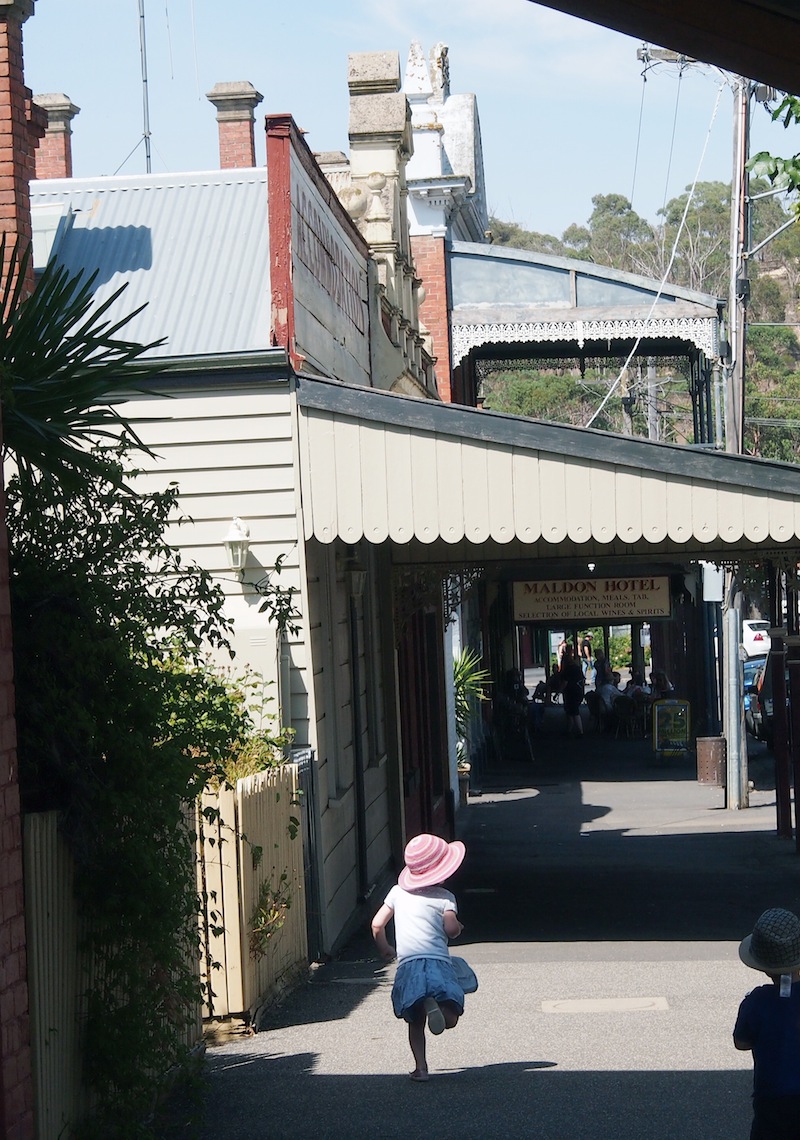 I had intended to share this post on the evening of Australia Day. That was two weeks ago, and I am only just getting to it now. Ugh so busy!
I had intended to share this post on the evening of Australia Day. That was two weeks ago, and I am only just getting to it now. Ugh so busy!
We don't really "celebrate" Australia Day in our family, only in as much as it is a day off which means we get some additional family time together, and family time is always worth celebrating... but actually celebrating Australia? Well, a date that commemorates the invasion of one peoples by another peoples probably isn't the best one to choose. I wish we had a different one. But that's another conversation.
Australia Day fell on a Tuesday this year, which was already a non-daycare day, and Mr B had a public holiday, and this meant we all had time off together. So in a completely random decision that morning, we decided to pack everyone up and head out to the country.
We ended up in Maldon, a picturesque gold-rush town in Victoria.
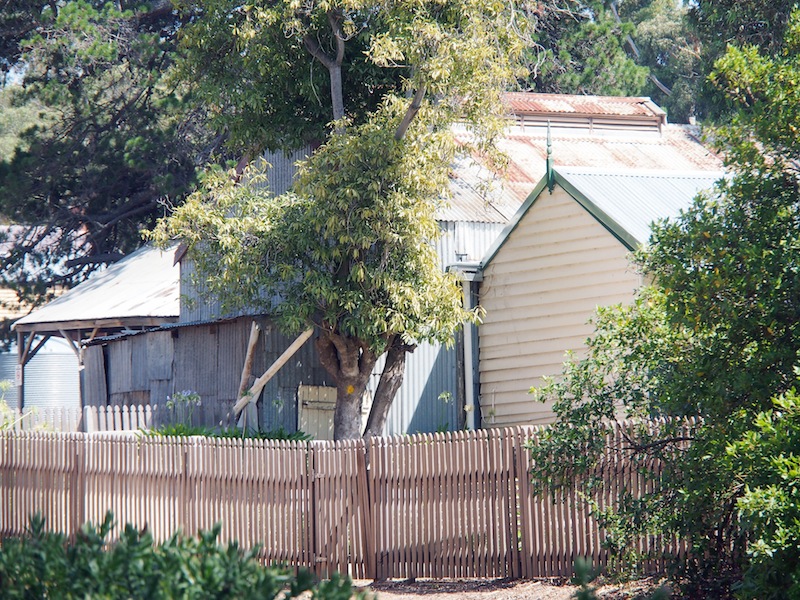
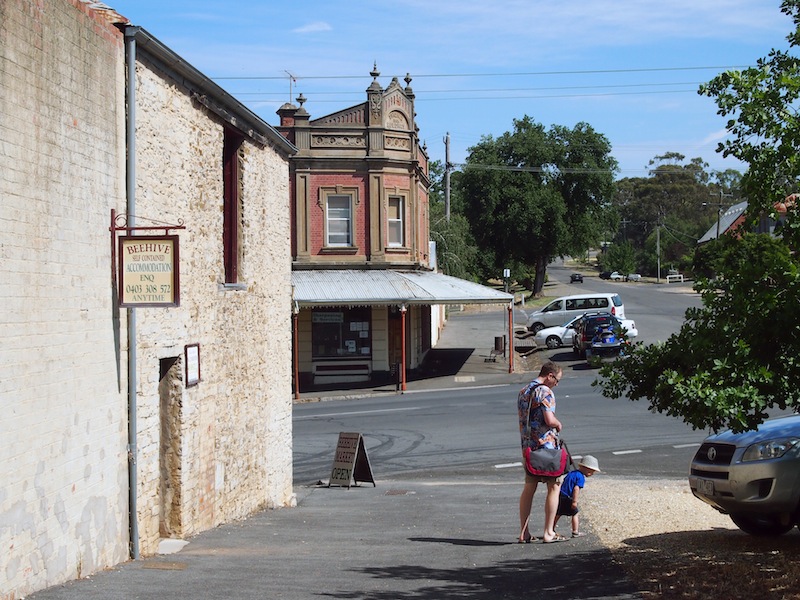
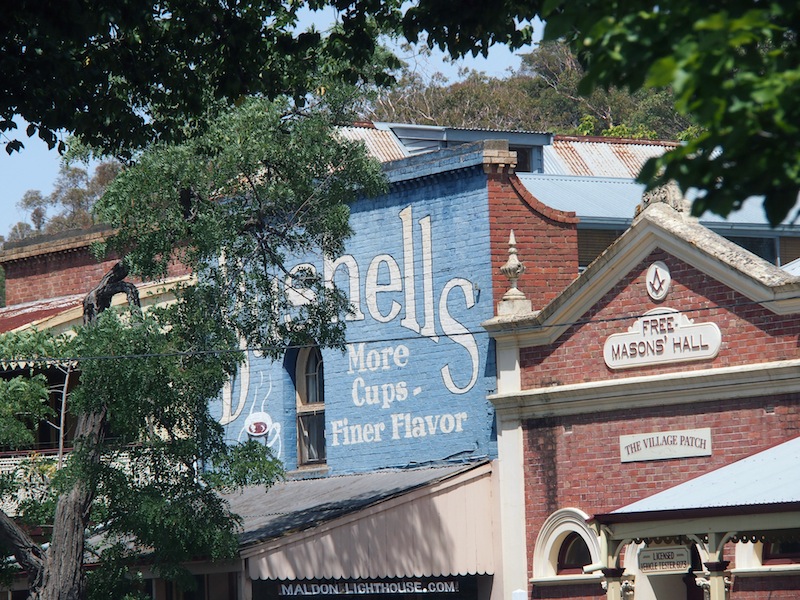
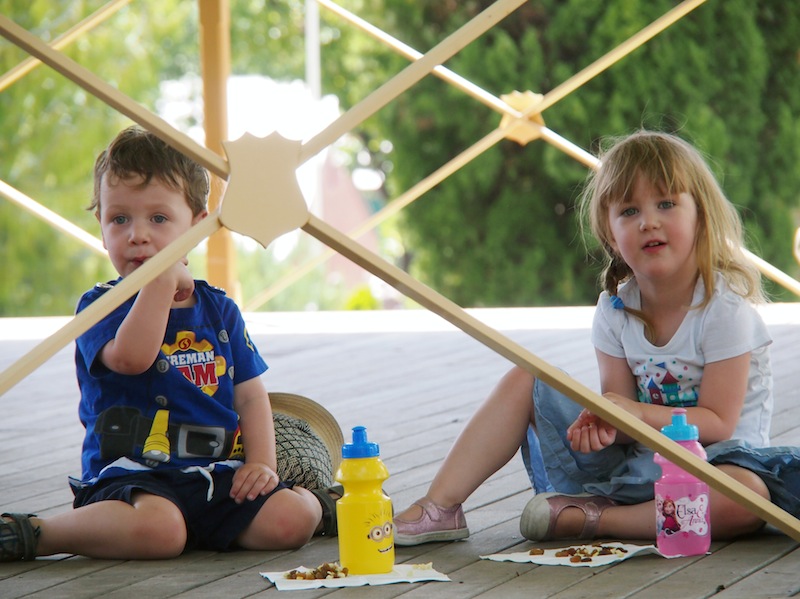
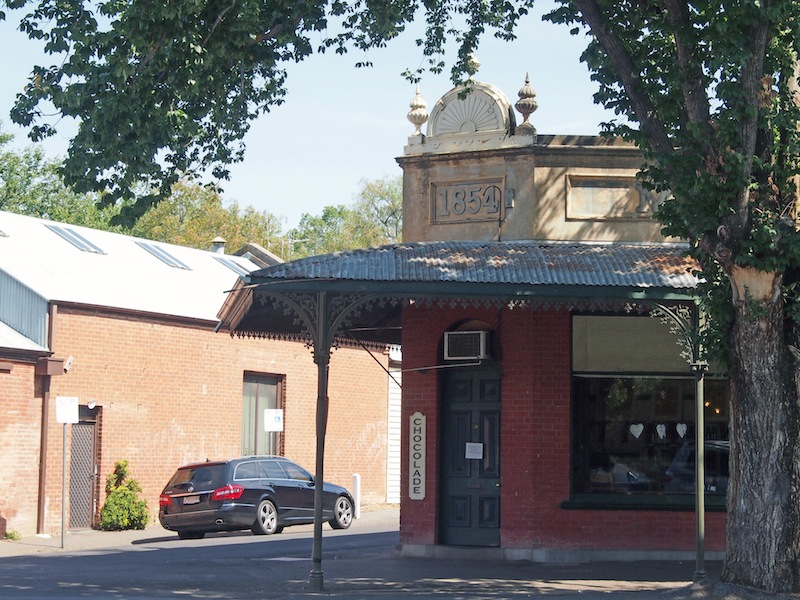
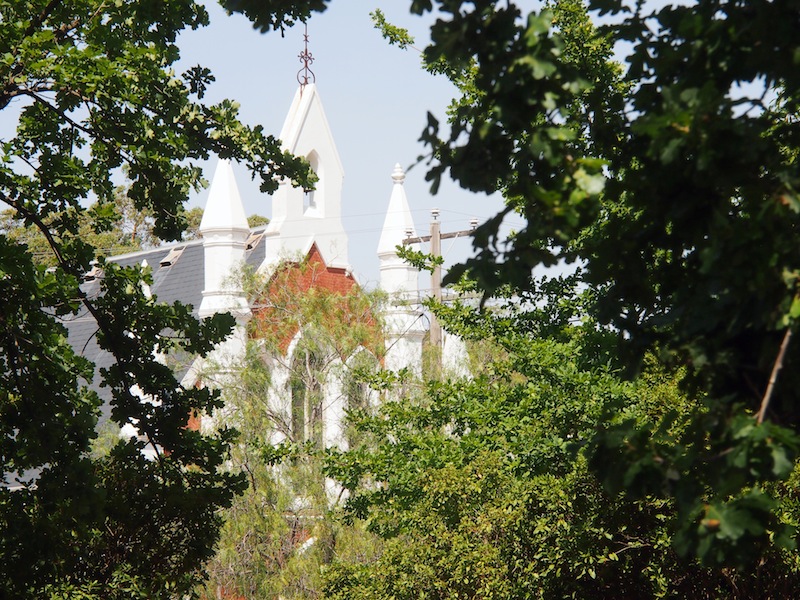
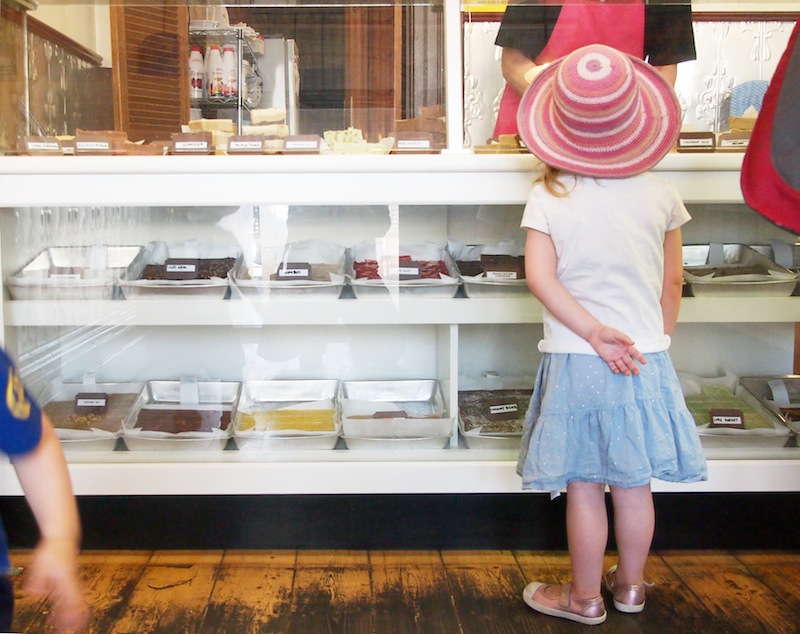
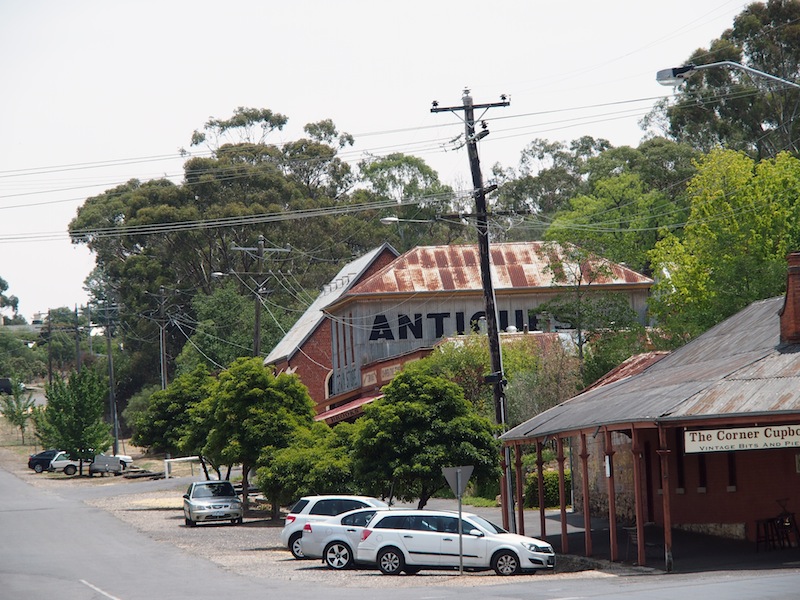
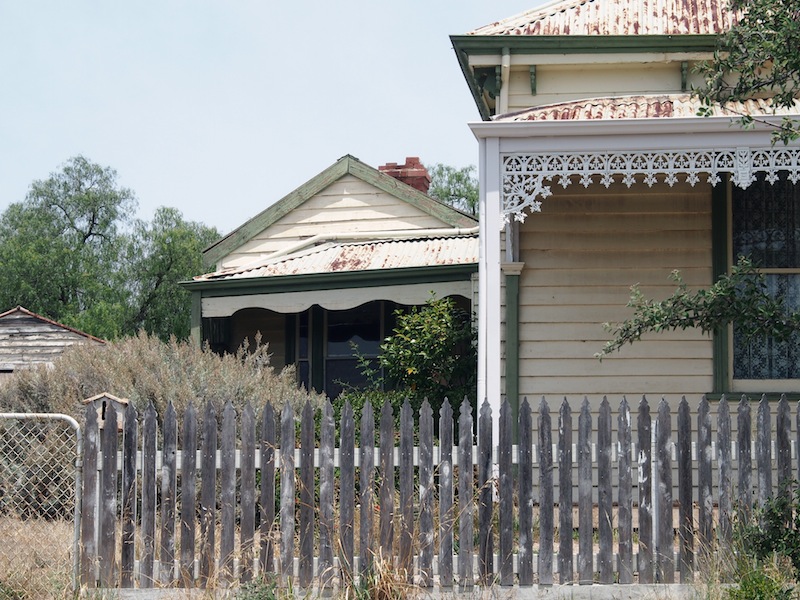
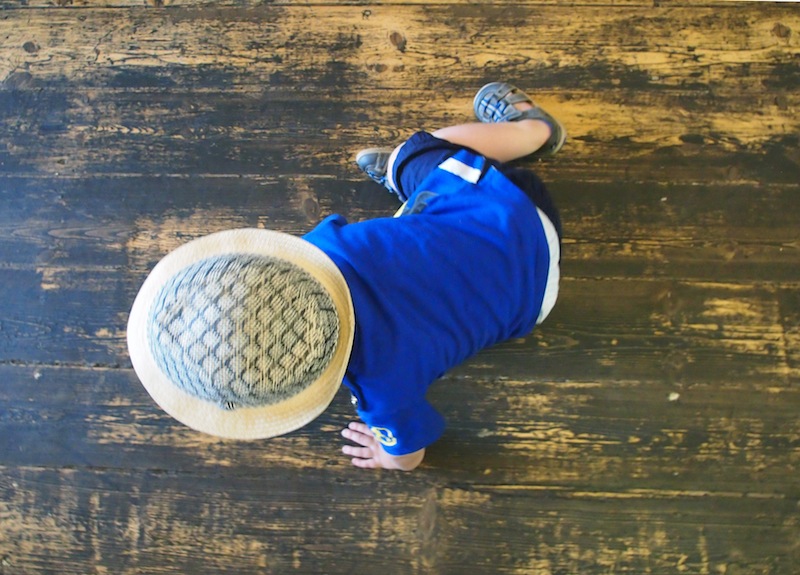
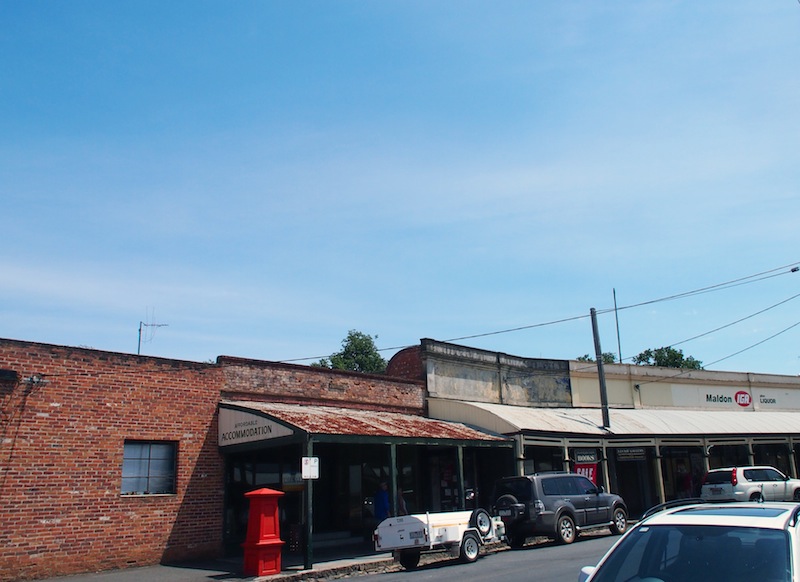
It was a pretty day, but it very soon got very hot. And maybe this is just me but whenever we visit country towns in Australia, especially in summer, I can't help thinking about all the clothes they used to wear, and life without air conditioning or refrigeration or even proper running water, and, no matter how lovely the town is to look at, I just think it must have been unbearably tough. They must have been made of sterner stuff, back then.
Not that Maldon is exactly outback or anything. The weather is relatively mild and it's not like you'd die of heat exhaustion or anything. (Once I visited a town in the outback where a new bride had come over in the boat from England but her husband was away mustering cattle or something. She lived there alone for several months and, when the husband returned, she had gone blind from the glare off the salt plains. When I was in that town listening to that story, it was 48 degrees. THAT's extreme.)
But even so, I'm just saying that even in picturesque Maldon - or picturesque Melbourne for that matter - things must have been pretty uncomfortable in the summer.
And then along we come in our air-conditioned cars and wander from shady porch to breezy garden, sip chilled wine in the old, old pub, buy gelato, and try to imagine ourselves stepping into the footprints left behind by 19th Century families.
The royal family
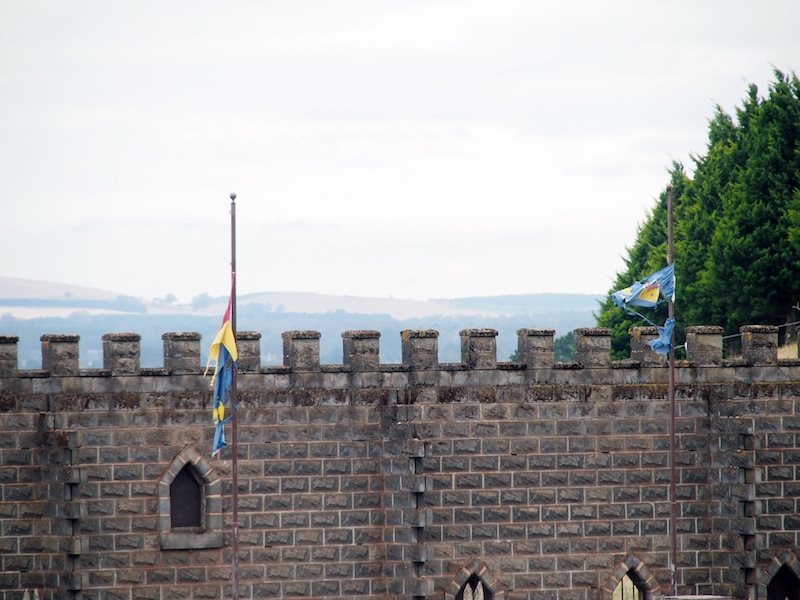
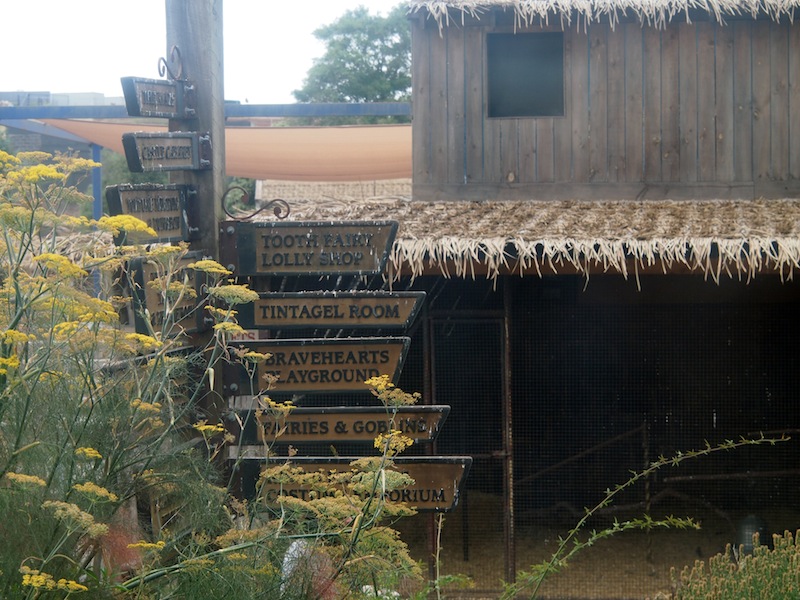
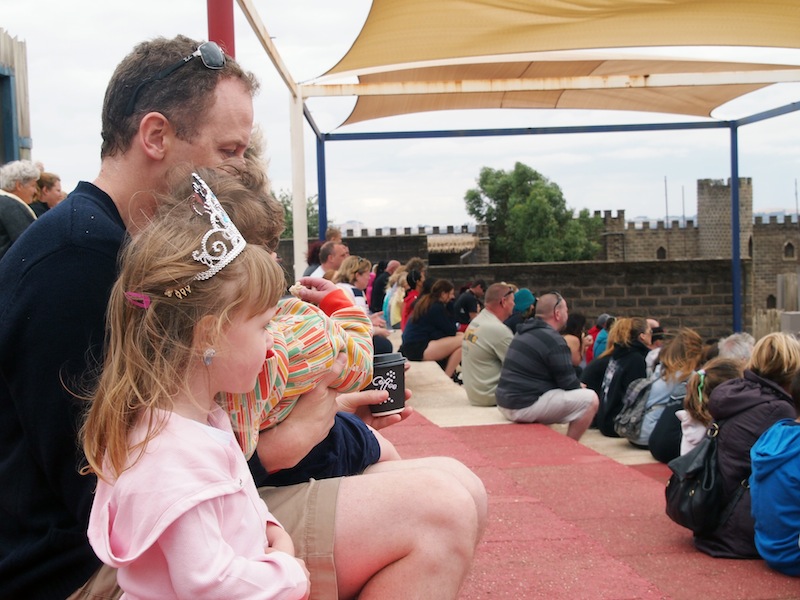
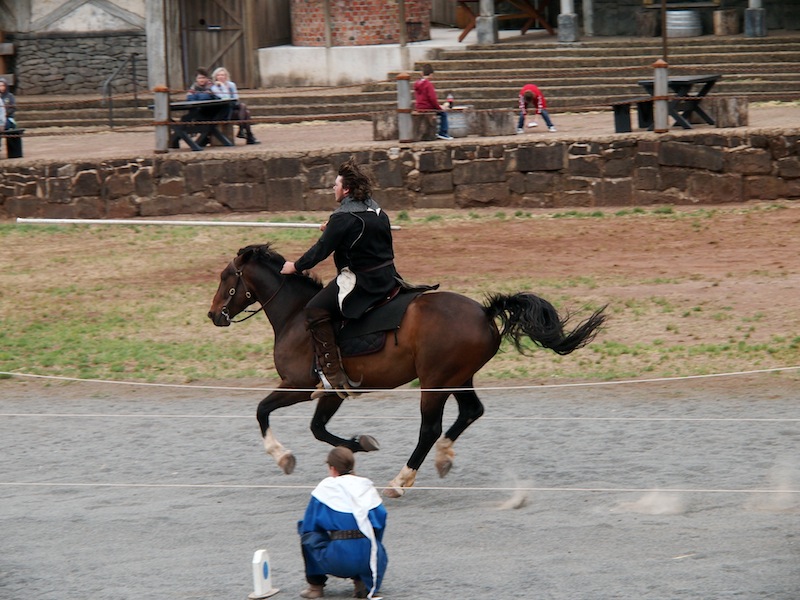
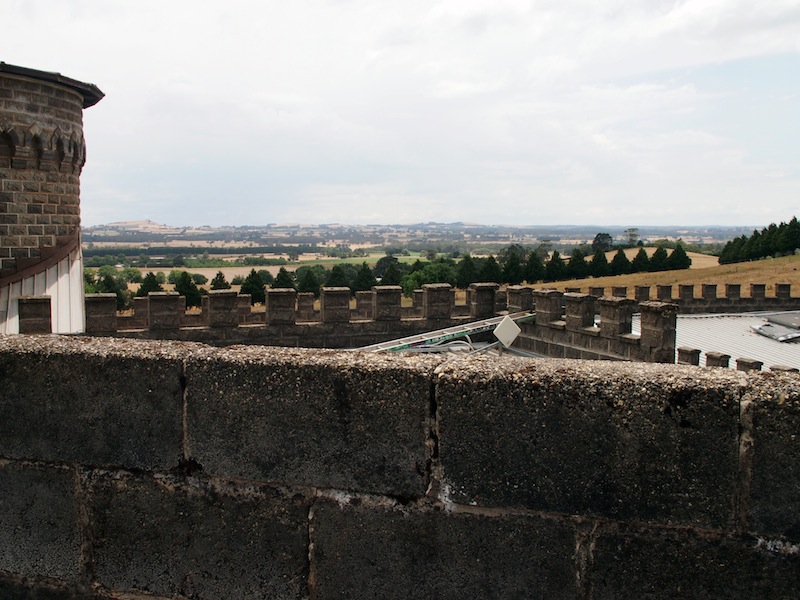
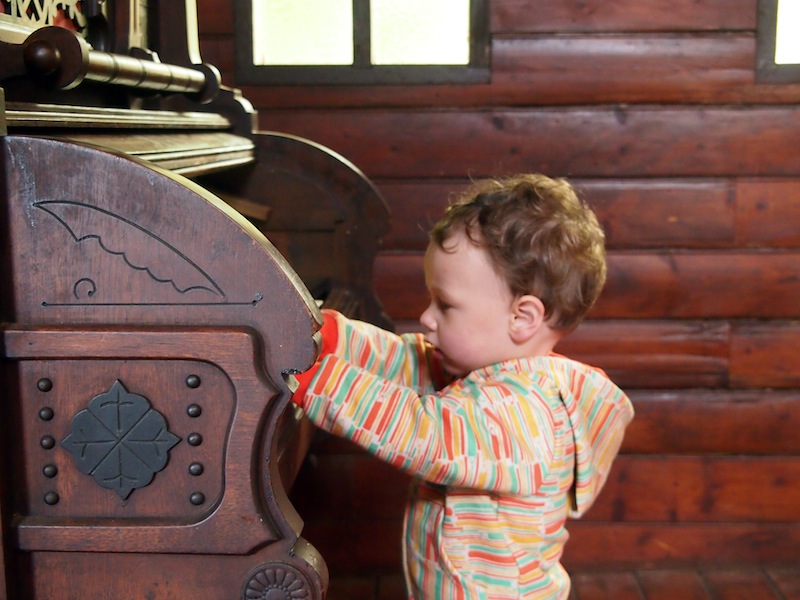
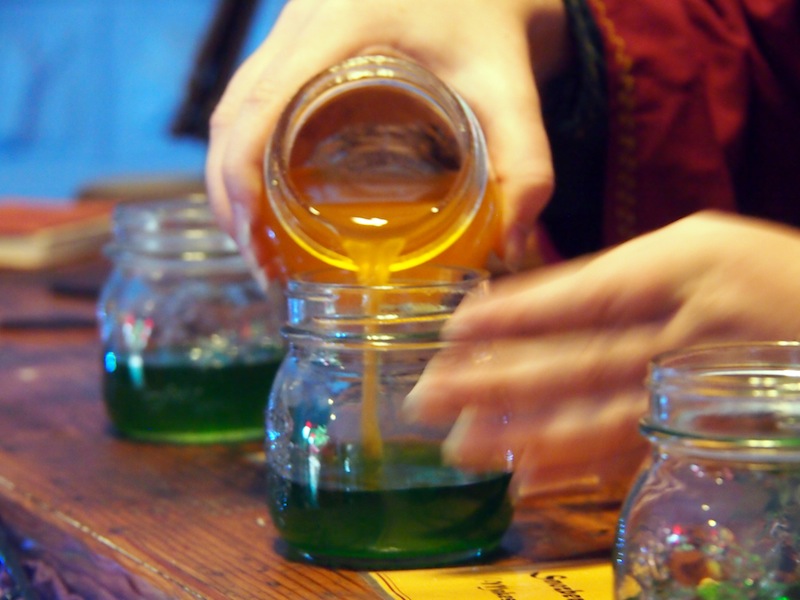
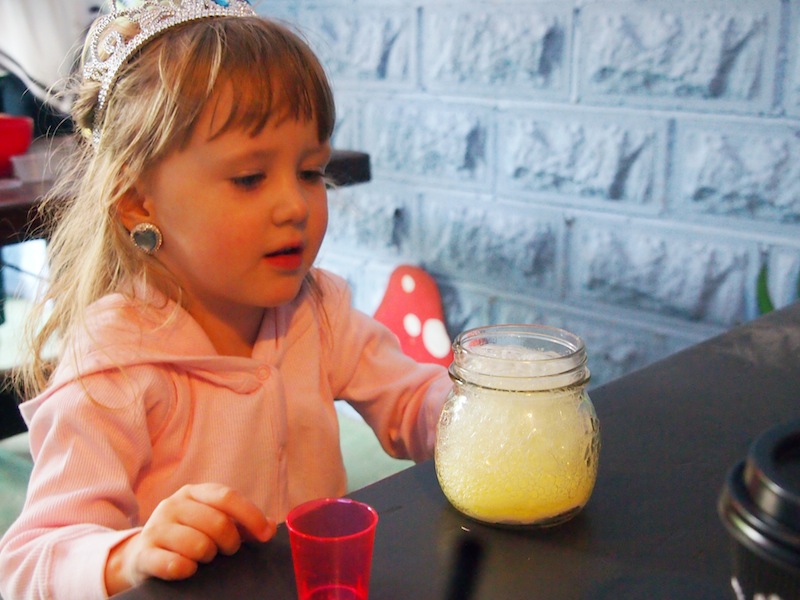
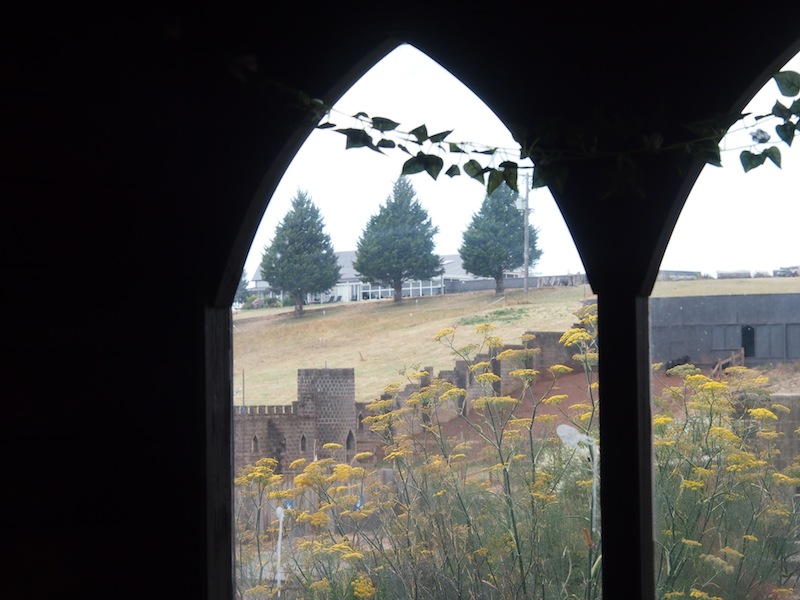
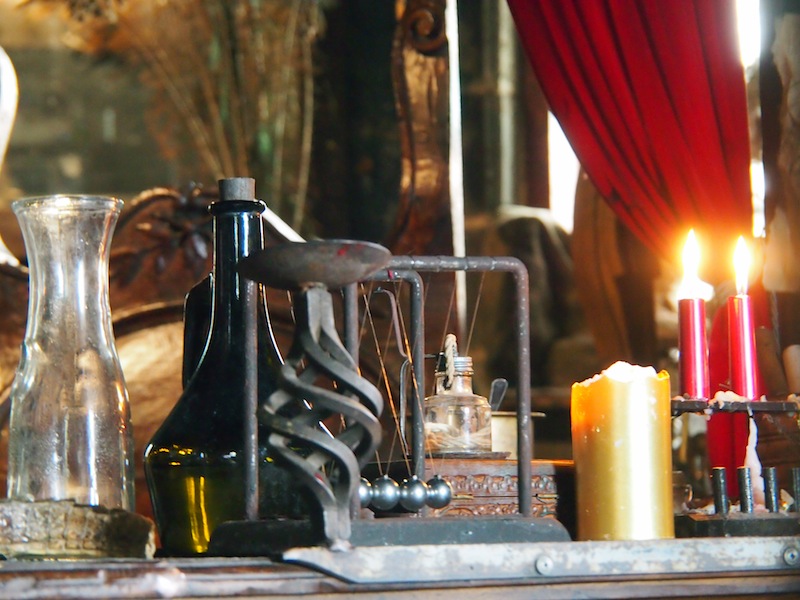
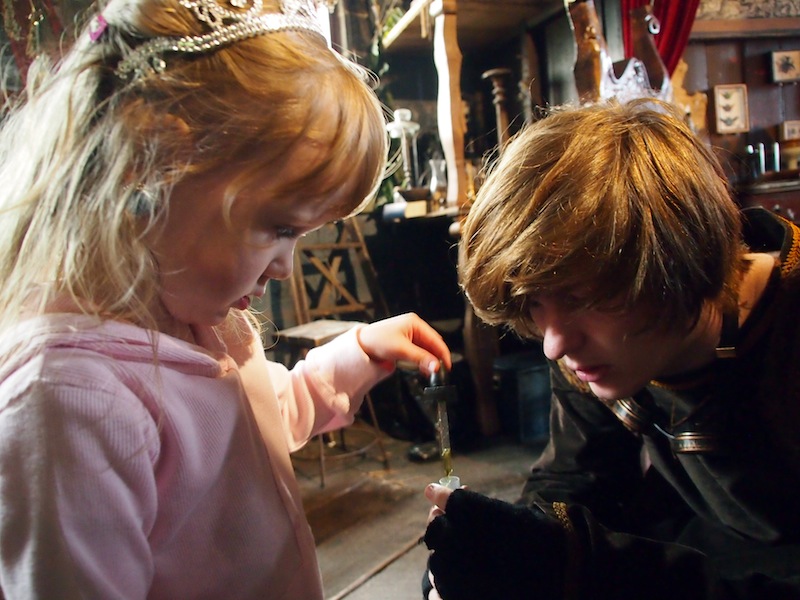
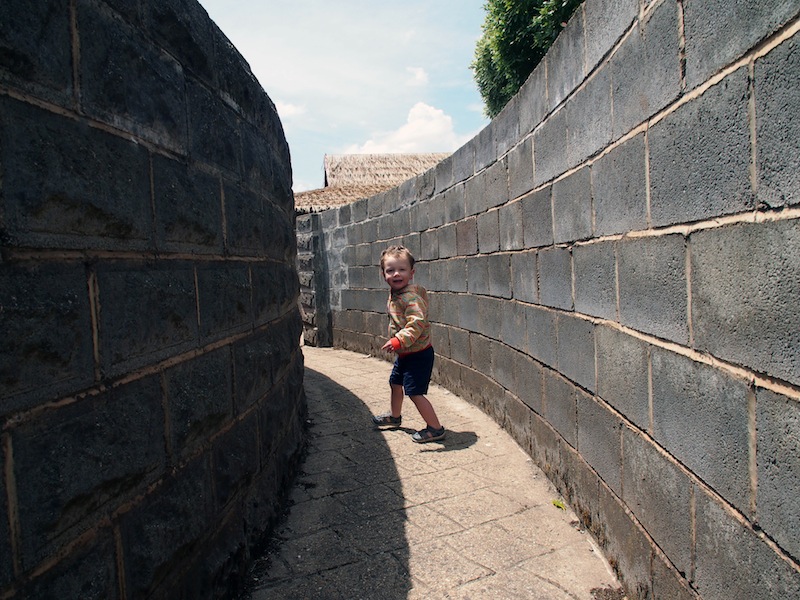
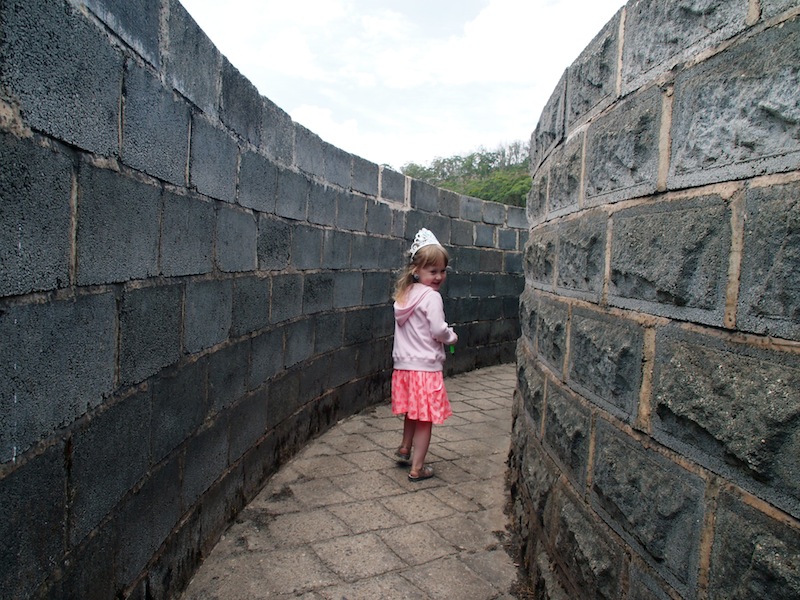
Not so long ago, Scout's career aspiration was to become Father Christmas, and then a doctor... and then a duck. These days she wants to be a queen. Not a princess, my daughter will have none of that: she is going straight to the top.
"I LOVE queens," she tells me. For Christmas, she asked Father Christmas for "a queen dolly." (Father Christmas found it more challenging than you might imagine to convince the elves to make such a thing).
"Why do you love queens so much?" I ask her.
"Because queens are Mummys and I love Mummy." Be still my heart.
"What do queens do?"
"They wear crowns and dresses and high heels." Of course.
"But," I prompt her, "what else do they do, after they get dressed?"
She looks at me with the air of a person patiently explaining something to someone who is a bit slow. "Well, we will just have to wait and see, won't we?"
Ralph, in the meantime, is VERY into castles. Essentially, any building that is more than two stories high is a castle.
"A castle! I see a castle!" he runs on the spot with excitement, every time we pass the construction site of an apartment complex on Sydney Road.
So on the last day of Mr B's holidays we decide to indulge both passions, and take them to Kryal Castle, the only "castle" within driving distance of Melbourne.
Say what you like about this place, my kids absolutely love it. Scout mixes potions and makes her own perfume. ("This is powdered goblin teeth," says the potions lady. "No, that's flour!" corrects Scout, despite being by far the youngest participant in the potion-mixing class. That's my little baker.) They are riveted during the jousting display (refusing to leave until the end, despite a bitter wind blowing); take turns gleefully playing "following the leader" in the maze; and Scout spends the entire drive home speculating how Merlin will rescue Queen Guinevere from Morgana.
Also, she wears her crown all day.
How to stay alive this summer (and all the other summers)
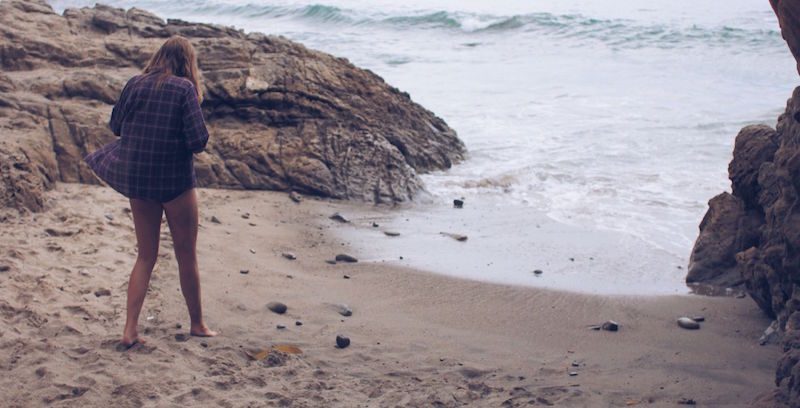 There's no getting away from it that the sun in Australia is mighty powerful, and mighty dangerous. For Australians, the sun is like some kind of god from ancient times: equally worshipped and feared (and equally benevolent and destructive).
There's no getting away from it that the sun in Australia is mighty powerful, and mighty dangerous. For Australians, the sun is like some kind of god from ancient times: equally worshipped and feared (and equally benevolent and destructive).
Have you seen the new TV ad by the Cancer Council of Victoria? The whole message is that it's not just those marathon sun-baking sessions or the unexpected "first of the season" sunburn that can cause skin-cancer; even little moments in the sun - walking the dog, rushing out to buy milk, cooking the BBQ - can add up. And your skin, the ad tells us, forgets nothing.
This is no toothless scare campaign. Australia has the highest incidence of melanoma in the world, and two in three Australians will be diagnosed with skin cancer by the age of 70. It's frightening!
My father-in-law died from melanoma. I didn't know him then, but I'm told it wasn't pretty, and the suffering was immense. Mr B and his mother and siblings lost their husband and father much too soon. Both of my parents regularly have skin-checks, and small cancers (thankfully benign) removed, and I know my own skin-future is probably not great. Throughout my childhood and teen years, I would spend all day every day outside without any kind of sun protection. "I don't burn, I tan," I'd tell people. Oh boy.
So anyway enough of the miserable stuff. The whole point of this blog post was to introduce you to a fantastic, FREE app I recently discovered: the Cancer Council of Victoria's SunSmart app. I use it every single day!
You tell the app where you are (in Australia) and it gives you advice on UV levels, in real time. The idea is that you know when to wear sunscreen, protective clothing and a hat, and to stay in the shade; and when you can be free to play in the sun and soak up some of that vital Vitamin D.
You can also create a "skin profile" (I created one for my children) by answering a couple of questions, that will tell you how much and how often to apply sunscreen. If you think you'll be out of doors quite a bit, you can turn on regular reminders to reapply sunscreen.
I use this app every day to watch the UV index rates, sending my children outside in the morning and late afternoon to get some healthy rays when I know it's safe, but bringing them in or covering them up when the UV index climbs. One thing that has been interesting for me to learn is that UV doesn't seem to necessarily correlate with clear skies, OR heat. There have been times during drizzling rain when the UV index was "extreme," and the other day it was 39 degrees but the UV was only "moderate," compared with an "extreme" rating earlier in the day when it wasn't quite so hot.
That's been an education for me and now I rely on my little app all the time. If you're concerned about sun safety this summer, I highly recommend it. For me, I feel a whole lot of peace of mind that my family can now enjoy the sun in a safety that is educated, rather than based on guesswork and estimations.
Photo credit: Cole Patrick, licensed for unlimited use under Creative Commons





